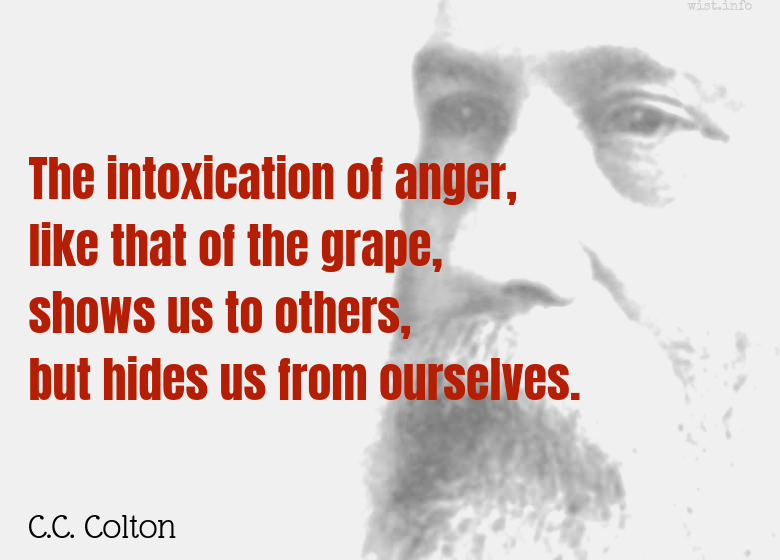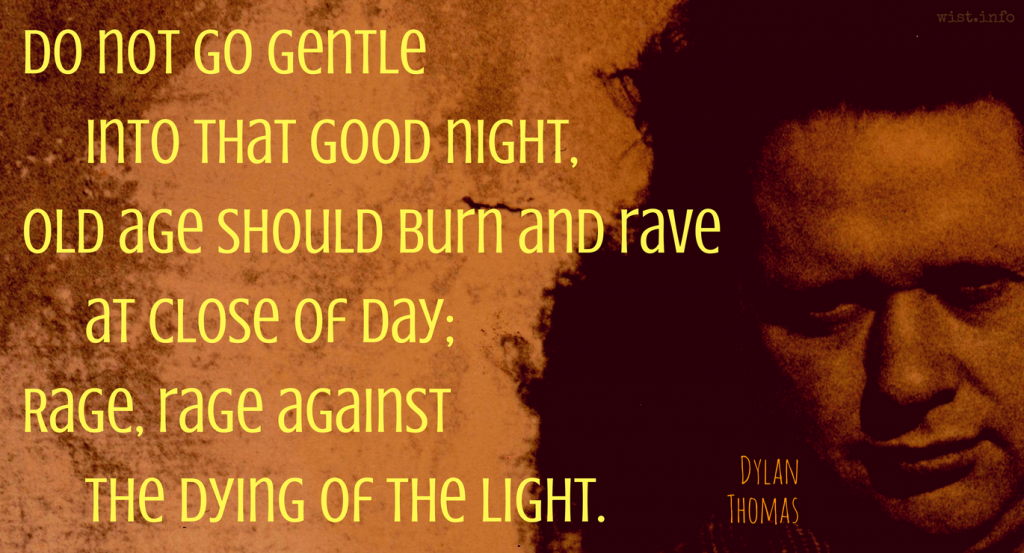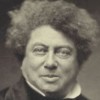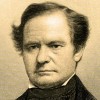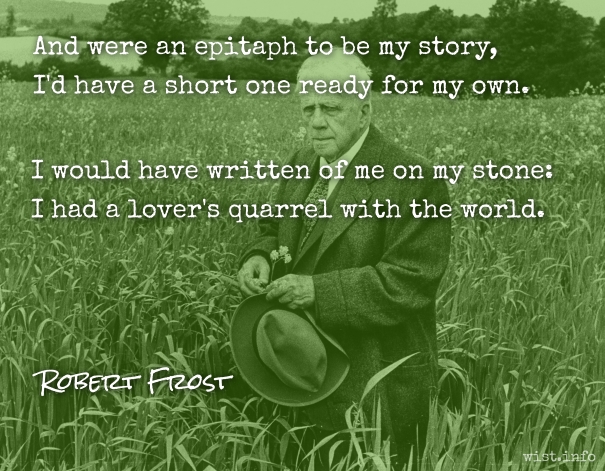CREON: A woman of hot temper — and a man the same —
Is a less dangerous enemy than one quiet and clever.[ΚΡΈΩΝ: Γυνὴ γὰρ ὀξύθυμος, ὡς δ᾽ αὔτως ἀνήρ,
ῥᾴων φυλάσσειν ἢ σιωπηλὸς σοφή.]Euripides (485?-406? BC) Greek tragic dramatist
Medea [Μήδεια], l. 319ff (431 BC) [tr. Vellacott (1963)]
(Source)
Expressing his mistrust of how reasonably, if tragically, Medea is presenting herself.
(Source (Greek)). Other translations:For 'gainst those
Of hasty tempers with more ease we guard.
Or men or women, than the silent foe
Who acts with prudence.
[tr. Wodhull (1782)]A woman, or a man, whose fiery spirit
Flames out with anger, puts us on our guard,
More than the prudent calmness that conceals
Its hate in silence.
[tr. Potter (1814)]For a woman passionate, yea and a man,
Is easier warded than a silent plotter.
[tr. Webster (1868)]For cunning woman, and man likewise, is easier to guard against when quick-tempered than when taciturn.
[tr. Coleridge (1891)]For a woman that is quick to anger, and a man likewise, is easier to guard against, than one that is crafty and keeps silence.
[tr. Buckley (1892)]The vehement-hearted woman -- yea, or man --
Is easier watched-for than the silent-cunning.
[tr. Way (Loeb) (1894)]A woman quick of wrath, aye, or a man,
Is easier watching than the cold and still.
[tr. Murray (1906)]A sharp-tempered woman, or, for that matter, a man,
Is easier to deal with than the clever type
Who holds her tongue.
[tr. Warner (1944)]A woman, just like a man, who is quick to wrath
Is easier guarded than one wise and silent.
[tr. Podlecki (1989)]A hot-tempered woman -- and a hot-tempered man likewise -- is easier to guard against than a clever woman who keeps her own counsel.
[tr. Kovacs (1994)]A woman who is hot-tempered, and likewise a man, is easier to guard against than one who is clever and controls her tongue.
[tr. Davie (1996)]You’re too silent now and whilst it is easy to protect oneself from a hot-headed man or woman, it is impossible to do so when the woman is scheming and silent.
[tr. Theodoridis (2004)]For a quick-tempered woman -- the same goes for a man --
is easier to guard against than a silent clever one.
[tr. Luschnig (2007)]Passionate people, women as well as men,
are easier to protect oneself against,
than someone clever who keeps silent.
[tr. Johnston (2008)]It is easier to guard against a hot-headed woman, or a man, than against one who is scheming and silent.
[ed. Taplin (2016)]A woman of sharp temper or indeed a man is easier to guard against than one who's clever and stays silent.
[tr. Ewans (2022)]For a woman with a sharp thūmos, and likewise a man, is easier to guard against than a sophē one who is silent.
[tr. Coleridge / Ceragioli / Nagy / Hour25]
Quotations about:
anger
Note not all quotations have been tagged, so Search may find additional quotes on this topic.
NURSE: Terrible is the temperament of royalty,
Who are rarely controlled, always imperious;
It is hard for them to give up their wrath.
To get used to living like everybody else
Is better.[ΤΡΟΦΌΣ: δεινὰ τυράννων λήματα καί πως
ὀλίγ᾽ ἀρχόμενοι, πολλὰ κρατοῦντες
χαλεπῶς ὀργὰς μεταβάλλουσιν.
τὸ γὰρ εἰθίσθαι ζῆν ἐπ᾽ ἴσοισιν
κρεῖσσον.]Euripides (485?-406? BC) Greek tragic dramatist
Medea [Μήδεια], l. 119ff (431 BC) [tr. Podlecki (1989)]
(Source)
(Source (Greek)). Other translations:For the souls
Of Kings are prone to cruelty, so seldom
Subdued, and over others wont to rule,
That it is difficult for such to change
Their angry purpose. Happier I esteem
The lot of those who still are wont to live
Among their equals.
[tr. Wodhull (1782)]Kings have a fiery quality of soul,
Accustom'd to command, if once they feel
control, though small, their anger blazes out
Not easily extinguish'd: hence I deem
An equal mediocrity of life
More to be wish'd.
[tr. Potter (1814)]Dread are the humours of princes: as wont
To be ruled in few things and in many to lord,
It is hard to them to turn from their wrath.
But to lead one's life in the level ways
Is best.
[tr. Webster (1868)]Strange are the tempers of princes, and maybe because they seldom have to obey, and mostly lord it over others, change they their moods with difficulty. 'Tis better then to have been trained to live on equal terms.
[tr. Coleridge (1891)]Dreadful are the dispositions of tyrants, and somehow in few things controlled, in most absolute, they with difficulty lay aside their passion. The being accustomed then to live in mediocrity of life is the better.
[tr. Buckley (1892)]Ah princes -- how fearful their moods are! --
Long ruling, unschooled to obey, --
Unforgiving, unsleeping their feuds are.
Better life's level way.
[tr. Way (Loeb) (1894)]Rude are the wills of princes: yea,
Prevailing alway, seldom crossed,
On fitful winds their moods are tossed:
'Tis best men tread the equal way.
[tr. Murray (1906)]Great people’s tempers are terrible, always
Having their own way, seldom checked,
Dangerous they shift from mood to mood.
How much better to have been accustomed
To live on equal terms with one’s neighbors.
[tr. Warner (1944)]Oh, it's a bad thing
To be born of high race, and brought up wilful and powerful in a great house, unruled
And ruling many: for then if misfortune comes it is unendurable, it drives you mad. I say that poor people
Are happier: the little commoners and humble people, the poor in spirit.
[tr. Jeffers (1946)]The mind of a queen
Is a thing to fear. A queen is used
To giving commands, not obeying them;
And her rage once roused is hard to appease.
To have learnt to live on the common level
Is better.
[tr. Vellacott (1963)]The minds of royalty are dangerous: since they often command and seldom obey, they are subject to violent changes of mood. For it is better to be accustomed to live on terms of equality.
[tr. Kovacs (1994)]They have frightening natures, those of royal blood; because, I imagine, they’re seldom overruled and generally have their way, they do not easily forget a grudge. Better to have formed the habit of living on equal terms with your neighbours.
[tr. Davie (1996)]How afraid I am of these royal rages! It’s so hard for such rages to subside.
Kings and queens have always been spoiled by power. They’re not used to taking orders. No, they’d much rather give them!
Kings and Queens only do what they want and forget about everyone else!
Oh, how much better it is to live a balanced life: to be an equal among equals.
[tr. Theodoridis (2004)]Tyrants’ tempers are insufferable:
they are seldom under control, their power is far-reaching.
It is hard for them to swallow their rages.
To get used to living on terms of equality
is better.
[tr. Luschnig (2007)]The pride of rulers is something to fear --
they often order men, but seldom listen,
and when their tempers change it’s hard to bear.
It’s better to get used to living life
as an equal common person.
[tr. Johnston (2008)]The temperaments of royalty are fearsome;
because they're almost unrestrained
and are so powerful, it is rare
for them to overcome their rage.
To be accustomed to live in equality
is best.
[tr. Ewans (2022)]Terrible / wonderful [deina] are the tempers of turannoi; maybe because they seldom have to obey, and mostly lord it over others, they change their moods with difficulty. It is better then to have been trained to live in equality.
[tr. Coleridge / Ceragioli / Nagy / Hour25]
Surely the idea of a “limited war” is one of the most dangerously self-deceiving verbal gimmicks ever invented. For though war makes use of reason, as a weapon, it is not reasonable in nature. Its nature is the nature of pride and anger. It follows the brute logic of violent emotion, which points directly toward the use of the greatest available power.
Wendell Berry (b. 1934) American farmer, educator, poet, conservationist
Speech (1968-02-10), “A Statement Against the War in Vietnam,” Kentucky Conference on the War and the Draft, University of Kentucky
(Source)
Collected in The Long-Legged House, Part 2 (1971).
Down, down, down into the darkness of the grave
Gently they go, the beautiful, the tender, the kind;
Quietly they go, the intelligent, the witty, the brave.
I know. But I do not approve. And I am not resigned.
KING RICHARD: Wrath-kindled gentlemen, be ruled by me.
Let’s purge this choler without letting blood.
This we prescribe, though no physician.
Deep malice makes too deep incision.
Forget, forgive; conclude and be agreed.
Our doctors say this is no month to bleed.William Shakespeare (1564-1616) English dramatist and poet
Richard II, Act 1, sc. 1, l. 156ff (1.1.56) (1595)
(Source)
In one of his more lucid (and early) moments of the play, Richard tries to calm the dispute between Bolingbroke and Mowbray.
KING RICHARD: In rage, deaf as the sea, hasty as fire.
William Shakespeare (1564-1616) English dramatist and poet
Richard II, Act 1, sc. 1, l. 20 (1.1.20) (1595)
(Source)
On the disputants coming before him, Bolingbroke and Mowbray.
The Rash, the Lazy, Lover, none’s so wild,
But may be tame, and may be wisely mild,
If they consult true Vertue’s Rules with care,
And lend to good advice a patient ear.[Invidus, iracundus, iners, vinosus, amator,
nemo adeo ferus est, ut non mitescere possit,
si modo culturae patientem commodet aurem.]Horace (65–8 BC) Roman poet, satirist, soldier, politician [Quintus Horatius Flaccus]
Epistles [Epistularum, Letters], Book 1, ep. 1, l. 38ff (1.1.38-40) (20 BC) [tr. Creech (1684)]
(Source)
(Source (Latin)). Other translations:Th'envyouse, angrye, drunken, slowe, the lover lewde and wylde
None so outeragiouse, but in tyme he maye become full mylde.
If he to good advertisemente will retche his listenyng eare,
And meekely byde with pacience the counsaile he shall heare.
[tr. Drant (1567)]The Envious, Wrathful, Sluggish, Drunkard, Lover:
No Beast so wild, but may be tam'd, if he
Will unto Precepts listen patiently.
[tr. Fanshawe; ed. Brome (1666)]The slave to envy, anger, wine, or love,
The wretch of sloth, its excellence shall prove:
Fierceness itself shall hear its rage away.
When listening calmly to the instructive lay.
[tr. Francis (1747)]The heart with envy cold -- with anger hot,
The libertine, the sluggard and the sot --
No wretch so savage, but, if he resign
His soul to culture, wisdom can refine.
[tr. Howes (1845)]The envious, the choleric, the indolent, the slave to wine, to women -- none is so savage that he can not be tamed, if he will only lend a patient ear to discipline.
[tr. Smart/Buckley (1853)]Run through the list of faults; whate'er you be,
Coward, pickthank, spitfire, drunkard, debauchee,
Submit to culture patiently, you'll find
Her charms can humanize the rudest mind.
[tr. Conington (1874)]However coarse in grain a man may be,
Drone, brawler, makebate, drunkard, debauchee,
A patient ear to culture let him lend,
He's sure to turn out gentler in the end.
[tr. Martin (1881)]Are you envious, irascible, inert, given to wine or immorality? No person is so savage that he cannot grow milder, provided he lend a patient ear to civilization's culture.
[tr. Elgood (1893)]The slave to envy, anger, sloth, wine, lewdness -- no one is so savage that he cannot be tamed, if only he lend to treatment a patient ear.
[tr. Fairclough (Loeb) (1926)]The envious man,
The sorehead, the lazy lout, the drinker, the lover:
No one is such a beast as not to be tamed
By lending a patient ear to moral advice.
[tr. Palmer Bovie (1959)]Envious, wrathful, lazy, drunken men, lewd lovers too,
none is so thoroughly wild a beast he can't be tamed,
if only he'll lend for cultivation's sake an open ear.
[tr. Fuchs (1977)]Jealousy,
Anger, laziness, drunkenness, lust: everything
Can be cured, nothing is so wild
That patient teaching will ever fail you.
[tr. Raffel (1983)]Nobody's so far gone in savagery --
A slave of envy, wrath, lust, drunkenness, sloth --
That he can't be civilized, if he'll only listen
Patiently to the doctor's good advice.
[tr. Ferry (2001)]Whether he’s envious, choleric, indolent, drunken or lustful --
no one is so unruly that he can’t become more gentle,
if only he listens with care to what his trainer tells him.
[tr. Rudd (2005 ed.)]Envious, irascible, idle, drunken, lustful,
No man’s so savage he can’t be civilised,
If he’ll attend patiently to self-cultivation.
[tr. Kline (2015)]
PROSPERO: Though with their high wrongs I am struck to th’ quick,
Yet with my nobler reason ’gainst my fury
Do I take part. The rarer action is
In virtue than in vengeance.William Shakespeare (1564-1616) English dramatist and poet
Tempest, Act 5, sc. 1, l. 32ff (5.1.32-36) (1611)
(Source)
CALVIN: I’m writing a fund-raising letter. The secret to getting donations is to depict everyone who disagrees with you as the enemy. Then you explain how they’re systematically working to destroy everything you hold dear. It’s a War of Values! Rational discussion is hopeless! Compromise is unthinkable! Our only hope is well-funded antagonism, so we need your money to keep up the fight!
HOBBES: How cynically unconstructive.
CALVIN: Enmity sells.
We were born for cooperation, like feet, like hands, like eyelids, like the rows of upper and lower teeth. So to work against each other is contrary to nature; and resentment and rejection count as working against someone.
[γεγόναμεν γὰρ πρὸς συνεργίαν ὡς πόδες, ὡς χεῖρες, ὡς βλέφαρα, ὡς οἱ στοῖχοι τῶν ἄνω καὶ κάτω ὀδόντων. τὸ οὖν ἀντιπράσσειν ἀλλήλοις παρὰ φύσιν: ἀντιπρακτικὸν δὲ τὸ ἀγανακτεῖν καὶ ἀποστρέφεσθαι.]
Marcus Aurelius (AD 121-180) Roman emperor (161-180), Stoic philosopher
Meditations [To Himself; Τὰ εἰς ἑαυτόν], Book 2, ch. 1 (2.1) [tr. Gill (2013)]
(Source)
(Source (Greek)). Alternate translations:For we are all born to be fellow-workers, as the feet, the hands, and the eyelids; as the rows of the upper and under teeth: for such therefore to be in opposition, is against nature; and what is it to chafe at, and to be averse from, but to be in opposition?
[tr. Casaubon (1634), 1.15]For we are all made for mutual Assistance, no less than the Parts of the Body are for the Service of the whole; From whence it follows that Clashing and Opposition is perfectly Unnatural: Now such an unfriendly Disposition is imply'd in Resentment and Aversion.
[tr. Collier (1701)]We were formed by nature for mutual assistance, as the two feet, the hands, the eye¬ lids, the upper and lower rows of teeth. Opposition to each other is contrary to nature: All anger and aversion is an opposition.
[tr. Hutcheson/Moor (1742)]For we are all born for our mutual assistance; as the hands and feet, and every part of the human body, are for the service of the whole; to thwart and injure each other, therefore, is contrary to nature. Now injuries and hostilities are generally the consequence of hatred and resentment.
[tr. Graves (1792)]For we are made for co-operation, like feet, like hands, like eyelids, like the rows of the upper and lower teeth. To act against one another, then, is contrary to nature; and it is acting against one another to be vexed and to turn away.
[tr. Long (1862)]For we are all made for mutual assistance, as the feet, the hands, and the eyelids, as the rows of the upper and under teeth, from whence it follows that clashing and opposition is perfectly unnatural. Now such an unfriendly disposition is implied in resentment and aversion.
[tr. Collier/Zimmern (1887)]For we are made for co-operation, like the feet, the hands, the eyelids, the upper and the lower rows of teech. To thwart one another is contrary to nature; and one form of thwarting is resentment and estrangement.
[tr. Rendall (1898)]For we are made by nature for mutual assistance, like the feet, the hands, the eyelids, the upper and lower rows of teeth. It is against nature for men to oppose each other; and what else is anger and aversion?
[tr. Hutcheson/Chrystal (1902)]For we have come into being for co-operation, as have the feet, the hands, the eyelids, the rows of upper and lower teeth. Therefore to thwart one another is against Nature; and we do thwart one another by shewing resentment and aversion.
[tr. Haines (Loeb) (1916)]For we have come into the world to work together, like feet, like hands, like eyelids, like the rows of upper and lower teeth. To work against one another therefore is to oppose Nature, and to be vexed with another or to turn away from him is to tend to antagonism.
[tr. Farquharson (1944)]For he and I were born to work together, like a man’s two hands, feet, or eyelids, or like the upper and lower rows of his teeth. To obstruct each other is against Nature’s law -- and what is irritation or aversion but a form of obstruction?
[tr. Staniforth (1964)]For we have come into being to work together, like feet, hands, or eyelids, or the two rows of teeth in our upper and lower jaws. To work against one another is therefore contrary to nature; and to be angry with another and turn away form him is surely to work against him.
[tr. Hard (1997 ed.)]We were born to work together like feet, hands, and eyes, like the two rows of teeth, upper and lower. To obstruct each other is unnatural. To feel anger at someone, to turn your back on him: these are obstructions.
[tr. Hays (2003)]We were born for cooperation, like feet, like hands, like eyelids, like the rows of upper and lower teeth. So to work in opposition to one another is against nature: and anger or rejection is opposition.
[tr. Hammond (2006)]For we have been made for cooperation, just like the feet, the hands, the eyelids, and the upper and lower teeth. To hinder one another, then, is contrary to Nature, and this is exactly what happens when we are angry and turn away from each other.
[tr. Needleman/Piazza (2008)]For we have come into being to work together, like feet, hands, eyelids, or the two rows of teeth in our upper and lower jaws. To work against one another is therefore contrary to nature; and to be angry with another person and turn away from him is surely to work against him.
[tr. Hard (2011 ed.)]For both they and I need each other. To act against them would be to act against myself. And to become angry and turn away from them is also to act against them.
[tr. McNeill (2019)]
But I have seen the beauty of good, and the ugliness of evil, and have recognized that the wrongdoer has a nature related to my own — not of the same blood or birth, but the same mind, and possessing a share of the divine. And so none of them can hurt me. No one can implicate me in ugliness. Nor can I feel angry at my relative, or hate him.
[ἐγὼ δὲ τεθεωρηκὼς τὴν φύσιν τοῦ ἀγαθοῦ ὅτι καλόν, καὶ τοῦ κακοῦ ὅτι αἰσχρόν, καὶ τὴν αὐτοῦ τοῦ ἁμαρτάνοντος φύσιν ὅτι μοι συγγενής, οὐχὶ αἵματος ἢ σπέρματος τοῦ αὐτοῦ, ἀλλὰ νοῦ καὶ θείας ἀπομοίρας μέτοχος, οὔτε βλαβῆναι ὑπό τινος αὐτῶν δύναμαι: αἰσχρῷ γάρ με οὐδεὶς περιβαλεῖ: οὔτε ὀργίζεσθαι τῷ συγγενεῖ δύναμαι οὔτε ἀπέχθεσθαι αὐτῷ.]
Marcus Aurelius (AD 121-180) Roman emperor (161-180), Stoic philosopher
Meditations [To Himself; Τὰ εἰς ἑαυτόν], Book 2, ch. 1 (2.1) [tr. Hays (2003)]
(Source)
(Source (Greek)). Alternate translations:But I that understand the nature of that which is good, that it only is to be desired, and of that which is bad, that it only is truly odious and shameful: who know moreover, that this transgressor, whosoever he be, is my kinsman, not by the same blood and seed, but by participation of the same reason, and of the same divine particle; How can I either be hurt by any of those, since it is not in their power to make me incur anything that is truly reproachful? or angry, and ill affected towards him, who by nature is so near unto me?
[tr. Casaubon (1634), 1.15]And since it's fallen to my share to understand the Natural Beauty of a good Action, and the Deformity of an ill One; since I am satisfied the Person disobliging is of Kin to me, and tho we are not just of the same Flesh and Blood, yet our Minds are nearly related, being both extracted from the Deity; since I am likewise convinc'd that no Man can do me a real injury, because no Man can force me to misbehave my self; For these Reasons, I can't find in my Heart to Hate, or to be Angry with one of my own Nature and Family.
[tr. Collier (1701)]But I have fully comprehended the nature of good, as only what is beautiful and honourable; and of evil, that it is always deformed and shameful; and the nature of those persons too who mistake their aim; that they are my kinsmen, by partaking, not of the same blood or seed, but of the same intelligent divine part; and that I cannot be hurt by any of them, since none of them can involve me in any thing dishonourable or deformed. I cannot be angry at my kinsmen, or hate them.
[tr. Hutcheson/Moor (1742)]But I, who have a more just idea of things, that nothing is good, but what is honourable, and nothing evil, but what is base; and am also sensible that the persons who offend me are in some sense allied to me, (I do not mean of the same flesh and blood, but that our souls are derived from, and particles of, the same divine nature) I can neither suffer any real injury from them, because they cannot compel me to do a base action; nor can I be angry with or hate thoe whom I consider as of the same nature and the same family with myself.
[tr. Graves (1792)]But I who have seen the nature of the good that it is beautiful, and of the bad that it is ugly, and the nature of him who does wrong, that it is akin to me; not [only] of the same blood or seed, but that it participates in [the same] intelligence and [the same] portion of the divinity, I can neither be injured by any of them, for no one can fix on me what is ugly, nor can I be angry with my kinsman, nor hate him.
[tr. Long (1862)]Since it has fallen to my share to understand the natural beauty of a good action, and the deformity of an ill one -- since I am satisfied the person disobliging is of kin to me, and though we are not just of the same flesh and blood, yet our minds are nearly related, being both extracted from the Deity I am likewise convinced that no man can do me a real injury, because no man can force me to misbehave myself, nor can I find it in my heart to hate or to be angry with one of my own nature and family.
[tr. Collier/Zimmern (1887)]But seeing that I have beheld the nature and nobility of good, and the nature and meanness of evil, and the nature of the sinner, who is my brother, participating not indeed in the same flesh and blood, but in the same mind and partnership with the divine, I cannot be injured by any of them; for no man can involve me in what demeans. Neither can I be angry with my brother, or quarrel with them.
[tr. Rendall (1898)]But I have considered the nature of the good, and found it beautiful: I have beheld the nature of the bad, and found it ugly. I also understand the nature of the evil-doer, and know that he is my brother, not because he shares with me the same blood or the same seed, but because he is a partaker of the same mind and of the same portion of immortality. I therefore cannot be hurt by any of these, since none of them can involve me in any baseness. I cannot be angry with my brother, or sever myself from him.
[tr. Hutcheson/Chrystal (1902)]But I, in that I have comprehended the nature of the Good that it is beautiful, and the nature of Evil that it is ugly, and the nature of the wrong-doer himself that it is akin to me, not as partaker of the same blood and seed but of intelligence and a morsel of the Divine, can neither be injured by any of them -- for no one can involve me in what is debasing -- nor can I be wroth with my kinsman and hate him.
[tr. Haines (Loeb) (1916)]But I, because I have seen that the nature of good is the right, and of ill the wrong, and that the nature of the man himself who does wrong is akin to my own (not of the same blood and seed, but partaking with me in mind, that is in a portion of divinity), I can neither be harmed by any of them, for no man will involve me in wrong, nor can I be angry with my kinsman or hate him.
[tr. Farquharson (1944)]But for my part I have long perceived the nature of good and its nobility, the nature of evil and its meanness, and also the nature of the culprit himself, who is my brother (not in the physical sense, but as a fellow-creature similarly endowed with reason and a share of the divine); therefore none of those things can injure me, for nobody can implicate me in what is degrading. Neither can I be angry with my brother or fall foul of him.
[tr. Staniforth (1964)]But I, who have beheld the nature of the good, and seen that it is the right; and of the bad, and seen that it is the wrong; and for the wrongdoer himself, and seeing that his nature is akin to my own -- not because he is of the same blood and seed, but because he shares with me in mind and a portion of the divine -- I, then, can neither be harmed by any of these men, nor can I become angry with one who is akin to me, nor can I hate him.
[tr. Hard (1997 ed.)]But I have seen that the nature of good is what is right, and the nature of evil what is wrong; and I have reflected that the nature of the offender himself is akin to my own -- not a kinship of blood or seed, but a sharing in the same mind, the same fragment of divinity. Therefore I cannot be harmed by any of them, as none will infect me with their wrong. Nor can I be angry with my kinsman or hate him.
[tr. Hammond (2006)]But insofar as I have comprehended the true nature of what is good, namely that it is fine and noble, and the true nature of what is bad, that it is shameful, and the true nature of the person who has gone astray: that he is just like me, not only in the physical sense but also with respect to Intelligence and having a portion of the divine -- insofar as I have comprehended all this, I can neither be harmed by any of them, for no one else can involve me in what is shameful and debasing, nor can I be angry with my fellow man or hate him.
[tr. Needleman/Piazza (2008)]But I, who have observed the nature of the good, and seen that it is the right; and of the bad, and seen that it is the wrong; and of the wrongdoer himself, and seen that his nature is akin to my own -- not because he is of the same blood and seed, but because he shares as I do in mind and thus in a portion of the divine -- I, then, can neither be harmed by these people, nor become angry with one who is akin to me, nor can I hate him.
[tr. Hard (2011 ed.)]But I have recognized the nature of the good and seen that it is the right, and the nature of the bad and seen that it is the wrong, and nature of th wrongdoer himself, and seen that he is related to me, not because he has the same blood or seed, but because he shares in the same mind and portion of divinity. So I cannot be harmed by any of them, as no one will involve me in what is wrong. Nor can I be angry with my relative or hate him.
[tr. Gill (2013)]But I, who know what is truly beautiful and truly ugly, and who know the wickedness of their hearts, also know that all these people are akin to me, that they are part of the same divine pattern. I cannot be injured by any of them, for no one can force me to see the world the way they do. Neither can I hate them, for both they and I need each other.
[tr. McNeill (2019)]
MALCOLM: Be this the whetstone of your sword. Let grief
Convert to anger. Blunt not the heart; enrage it.William Shakespeare (1564-1616) English dramatist and poet
Macbeth, Act 4, sc. 3, l. 268ff (4.3.268-269) (1606)
(Source)
To Macduff, after Macbeth's killers have murdered Macduff's family.
If your anger decreases with time, you did injustice; if it increases, you suffered injustice.
Nassim Nicholas Taleb (b. 1960) Lebanese-American essayist, statistician, risk analyst, aphorist
The Bed of Procrustes: Philosophical and Practical Aphorisms, “Preludes” (2010)
(Source)
SECOND MURDERER: I am one, my liege,
Whom the vile blows and buffets of the world
Have so incensed that I am reckless what
I do to spite the world.FIRST MURDERER: And I another,
So weary with disasters, tugged with fortune,
That I would set my life on any chance,
To mend it, or be rid on ‘t.William Shakespeare (1564-1616) English dramatist and poet
Macbeth, Act 3, sc. 1, l. 121ff (3.1.121-128) (1606)
(Source)
What did you expect? I don’t know why we’re so surprised. When you put your foot on a man’s neck and hold him down for three hundred years, and then you let him up, what’s he going to do? He’s going to knock your block off.
Lyndon B. Johnson (1908-1973) American politician, educator, US President (1963-69)
Comment (1968-04-08) to George Christian
(Source)
Regarding the continuing rioting after the assassination of Martin Luther King, Jr., four days earlier.
Quoted in Nick Kotz, Judgment Days: Lyndon Baines Johnson, Martin Luther King, Jr., and the Laws that Changed America, ch. 14 (2005), from the author's interview with Christian.
The Fates, and Furies, too, glide with linked hands over life, as well as the Graces and Sirens.
[Die Parzen und Furien ziehen auch mit verbundnen Händen um das Leben, wie die Grazien und die Sirenen.]Jean Paul Richter (1763-1825) German writer, art historian, philosopher, littérateur [Johann Paul Friedrich Richter; pseud. Jean Paul]
Titan, Jubilee 35, cycle 140 [Siebenkäs] (1803) [tr. Brooks (1863)]
(Source)
(Source (German)). Alternate translation:The Fates and the Furies, as well as the Graces and Sirens, glide with linked hands over life.
[comp. Hoyt (1883)]
The sun should not set upon our anger, neither should he rise upon our confidence. We should freely forgive, but forget rarely. I will not be revenged, and I owe to my enemy; but I will remember, and this I owe to myself.
Charles Caleb "C. C." Colton (1780-1832) English cleric, writer, aphorist
Lacon: Or, Many Things in Few Words, Vol. 1, § 35 (1820)
(Source)
Whoever too precipitately yields
To anger, shall find sorrow at the last:
For wrath unbridled oft deceives mankind.[Οργή γάρ όστις ευθέως χαρίζεται ,
Κακώς τελευτά πλείστα γάρ σφάλλει βρoτούς .]Euripides (485?-406? BC) Greek tragic dramatist
Æolus [Αἴολος], frag. 31 (TGF) [tr. Wodhull (1809)]
(Source)
Nauck frag. 31, Barnes frag. 62, Musgrave frag.3. (Source (Greek)). Alternate translation:Whoever yields to anger suffers a piteous end.
[Source]
A bitter-tongued parent cannot teach respect for facts. Truth for its own sake can be a deadly weapon in family relations. Truth without compassion can destroy love. Some parents try too hard to prove exactly how, where and why they have been right. This approach will bring bitterness and disappointment. When attitudes are hostile, facts are unconvincing.
Haim Ginott (1922-1973) Israeli-American school teacher, child psychologist, psychotherapist [b. Haim Ginzburg]
Between Parent and Teenager, ch. 2 “Rebellion and Response” (1969)
(Source)
Sometimes mis-cited to the earlier Between Parent and Child (1965).
Despair is anger with no place to go.
Mignon McLaughlin (1913-1983) American journalist and author
The Neurotic’s Notebook, ch. 8 (1963)
(Source)
What have you to say against laughing? Cannot one be very serious even whilst laughing? Dear Major, laughter keeps us more rational than vexation.
[Was haben Sie denn gegen das Lachen? Kann man denn auch nicht lachend sehr ernsthast sein? Lieber Major, das Lachen erhält uns vernünftiger als der Verdruss.]
Gotthold Lessing (1729-1781) German playwright, philosopher, dramaturg, writer
Minna von Barnhelm, Act 4, sc. 6 [Minna] (1763) [tr. Holroyd/Bell (1888)]
(Source)
(Source (German)). Alternate translation:What have you to say against laughing? Can we not while laughing be very serious? Laughing keeps us more rational than sadness caused by vexation.
[Source (1884)]
Some think they see their own hope to advance
tied to their neighbor’s fall, and thus they long
to see him cast down from his eminence;
Some fear their power, preferment, honor, fame
will suffer by another’s rise, and thus,
irked by his good, desire his ruin and shame;
And some at the least injury catch fire
and are consumed by thoughts of vengeance; thus,
their neighbor’s harm becomes their chief desire.
[E’ chi, per esser suo vicin soppresso,
spera eccellenza, e sol per questo brama
ch’el sia di sua grandezza in basso messo;
è chi podere, grazia, onore e fama
teme di perder perch’altri sormonti,
onde s’attrista sì che ’l contrario ama;
ed è chi per ingiuria par ch’aonti,
sì che si fa de la vendetta ghiotto,
e tal convien che ’l male altrui impronti.]Dante Alighieri (1265-1321) Italian poet
The Divine Comedy [Divina Commedia], Book 2 “Purgatorio,” Canto 17, l. 115ff (17.115-123) (1314) [tr. Ciardi (1961)]
(Source)
Virgil explains to Dante how "bad" love -- love for self, love of another's harm -- can manifest as Pride, Envy, or Wrath toward others, the sins addressed in the first three tiers of Purgatory.
(Source (Italian)). Alternate translations:Those first the taints, that to their Neighbours' fall
Trust for distinction on this Earthly Ball,
In talents, wealth, or fame, and feed their pride
By the sad sight of others' hopes depress'd,
And o'er their ruin lift a lofty crest,
With Venom from the fount of Good supply'd.
The next that feel this sullen Stygian flame,
Are those, that fear to lose their wealth or fame,
Or any gift, by bounteous Heav'n assign'd;
And long possess'd of Fortune's turning wheel,
In its ascent another name reveal,
That threats to leave them, and their hopes behind.
Another evil thus becomes their good,
And feeds their black desires with Demon food. --
The third are they, who, with the sense of wrong,
Burn inward, or with fell, vindictive Wrath
Pursue their brethren to the Cave of Death,
By love of Pelf, or fiend-like Frenzy stung.
[tr. Boyd (1802), st. 28-30]There is who hopes (his neighbour’s worth deprest,)
Preeminence himself, and coverts hence
For his own greatness that another fall.
There is who so much fears the loss of power,
Fame, favour, glory (should his fellow mount
Above him), and so sickens at the thought,
He loves their opposite: and there is he,
Whom wrong or insult seems to gall and shame
That he doth thirst for vengeance, and such needs
Must doat on other’s evil.
[tr. Cary (1814)]There is, in order neighbour to suppress,
Who would excel, himself, his sole desire
Grandeur, that sees another in the mire:
There is who power, grace, and honour, fame,
Still fears to lose, because the rest surpass,
Grows sad, and loves the counteracting cause:
There is who, for injurious affront,
Revenge desires, thirsts for another's pain,
And hence to ill of others must attain.
[tr. Bannerman (1850)]There are, who, by abasement of their neighbour,
Hope to excel, and therefore only long
That from his greatness he may be cast down;
There are, who power, grace, honour, and renown
Fear they may lose because another rises,
Thence are so sad that the reverse they love;
And there are those whom injury seems to chafe,
So that it makes them greedy for revenge,
And such must needs shape out another's harm.
[tr. Longfellow (1867)]There is who, through his neighbour being kept down, hopes for excellence, and only for this reason yearns that he may be from his greatness brought low. There is who fears to lose power, grace, honour, and fame, in case another mounts up, wherefore he grows so sad that he loves the contrary. And there is who through injury appears so to take shame that he becomes gluttonous of vengeance; and such an one it behoves that he put forward another's ill.
[tr. Butler (1885)]There is, who through his neighbour's ruin, so
Hopeth pre-eminence, who hence doth call
That he from grandeur may be cast down low.
There is, who fears to lose power, grace, and all
Honour and fame, because that others rise.
Which grieves him so that he desires their fall.
There is, who seems so hurt by injuries,
That he on vengeance greedily doth brood;
And such a one another's ill must prize.
[tr. Minchin (1885)]There is he who hopes to excel through the abasement of his neighbor, and only longs that from his greatness he may be brought low. There is he who fears loss of power, favor, honor, fame, because another rises; whereat he is so saddened that he loves the opposite. And there is he who seems so outraged by injury that it makes him gluttonous of vengeance, and such a one must needs coin evil for others.
[tr. Norton (1892)]There is he who through his neighbour's abasement hopes to excel, and solely for this desires that he be cast down from his greatness;
there is he who fears to lose power, favour, honour and fame because another is exalted, wherefore he groweth sad so that he loves the contrary;
and there is he who seems to be so shamed through being wronged, that he becomes greedy of vengeance, and such must needs seek another's hurt.
[tr. Okey (1901)]There is he that hopes to excel by the abasement of his neighbour and for that sole reason longs that from his greatness he may be brought low; there is he that fears to lose power, favour, honour, and fame because another surpasses, by which he is so aggrieved that he loves the contrary; and there is he that feels himself so disgraced by insult that he becomes greedy of vengeance, and such a one must needs contrive another's harm.
[tr. Sinclair (1939)]There is, who through his neighbour's overthrow
Hopes to excel, and only for that cause
Longs that he may from greatness be brought low.
There is, who fears power, favour, fame to lose
Because another mounts; wherefore his lot
So irks, he loves the opposite to choose.
And there is, who through injury grows so hot
From shame, with greed of vengeance he is burned,
And so must needs another's ill promote.
[tr. Binyon (1943)]Some hope their neighbour’s ruin may divert
His glory to themselves, and this sole hope
Prompts them to drag his greatness in the dirt;
Some, in their fear to lose fame, favour, scope,
And honour, should another rise to power,
Wishing the worst, sit glumly there and mope;
And some there are whose wrongs have turned them sour,
So that they thirst for vengeance, and this passion
Fits them to plot some mischief any hour.
[tr. Sayers (1955)]There is he that hopes to excel by the abasement of his neighbor, and solely for this desires that he be cast down from greatness.
There is he that fears to lose power, favor, honor, and fame, because another is exalted, by which he is so saddened that he loves the contrary.
And there is he who seems so outraged by injury that he becomes greedy of vengeance, and such a one must needs contrive another's hurt.
[tr. Singleton (1973)]There is the man who sees his own success
connect to his neighbor's downfall; thus,
he longs to see him fall from eminence.
Next, he who fears to lose honor and fame,
power and favor, if his neighbor rise:
vexed by this good, he wishes for the words.
Finally, he who, wronged, flares up in rage:
with his great passion for revenge, he thinks
only of how to harm his fellow man.
[tr. Musa (1981)]There is the man who, through the suppression of his neighbour,
Hopes to excel, and for that reason only
Desires to see him cast down from his greatness:
There is the man who fears to lose power, favour,
Honour and glory because of another’s success,
And so grieves for it that he loves the opposite:
And there is the man who takes umbrage at injury
So that he becomes greedy for revenge
And such a man must seek to harm another.
[tr. Sisson (1981)]There’s he who, through abasement of another,
hopes for supremacy; he only longs
to see his neighbor’s excellence cast down.
Then there is one who, when he is outdone,
fears his own loss of fame, power, honor, favor;
his sadness loves misfortune for his neighbor.
And there is he who, over injury
received, resentful, for revenge grows greedy
and, angrily, seeks out another’s harm.
[tr. Mandelbaum (1982)]There are those who hope for supremacy through their neighbor’s being kept down, and only on this account desire that his greatness be brought low;
there are those who fear to lose power, favor, honor, or fame because another mounts higher, and thus are so aggrieved that they love the contrary;
and there are those who seem so outraged by injury that they become greedy for revenge, and thus they must ready harm for others.
[tr. Durling (2003)]There are those who hope to excel through their neighbour’s downfall, and because of this alone want them toppled from their greatness. This is Pride.
There are those who fear to lose, power, influence, fame or honour because another is preferred, at which they are so saddened they desire the contrary. This is Envy.
And there are those who seem so ashamed because of injury, that they become eager for revenge, and so are forced to wish another’s harm. This is Wrath.
[tr. Kline (2002)]Some hope, by keeping all their neighbours down, that they'll excel. They yearn for that alone -- to see them brought from high to low estate.
Then, some will fear that, if another mounts, they'll lose all honour, fame and grace and power, so, grieving at success, love what it’s not.
And some, it seems, when hurt, bear such a grudge that they crave only to exact revenge -- which means they seek to speed another’s harm.
[tr. Kirkpatrick (2007)]There is the one, hoping to excel by bringing down
his neighbor, who, for that sole reason, longs
that from his greatness his neighbor be brought low.
There is the one who fears the loss of power, favor,
honor, fame -- should he be bettered by another.
This so aggrieves him that he wants to see him fall.
And there is the one who thinks himself offended
and hungers after vengeance,
and he must then contrive another's harm.
[tr. Hollander/Hollander (2007)]First, there's the man who aspires to excellence
By pressing down his neighbor: only this yearning
Makes him strive to pull his neighbor to the ground.
Then there's the man with power, favor, and honor,
And so afraid of losing these when someone
Climbs above him, that he hates what once he loved.
And there's the man who, outraged at being insulted,
Lusts for the chance of taking revenge, and rushes
Into wicked plans for hurting others.
[tr. Raffel (2010)]
LEAR: I will do such things —
What they are, yet I know not, but they shall be
The terrors of the Earth!William Shakespeare (1564-1616) English dramatist and poet
King Lear, Act 2, sc. 4, l. 321ff (2.4.321-323) (1606)
(Source)
Blind greed! Brainless rage!
In our brief lives they drive us beyond sense
And leave us misery for a heritage
Throughout eternity![Oh cieca cupidigia e ira folle,
che sì ci sproni ne la vita corta,
e ne l’etterna poi sì mal c’immolle!]Dante Alighieri (1265-1321) Italian poet
The Divine Comedy [Divina Commedia], Book 1 “Inferno,” Canto 12, l. 49ff (12.49-51) (1309) [tr. James (2013)]
(Source)
On seeing Phlegethon, the river of boiling blood, in which those who violently injured others (through greed or wrath) are forced to stand for all eternity.
Some versions have this as something Virgil says; most make it an exclamation of Dante's.
(Source (Italian)). Alternate translations:O foolish Rage, O blind desire,
That spurs you on, in the short life above,
To such dire Acts as to eternity
Will keep you in this wretched bath below!
[tr. Rogers (1782), l. 45ff]O blind lust!
O foolish wrath! who so dost goad us on
In the brief life, and in the eternal then
Thus miserably o’erwhelm us.
[tr. Cary (1814)]Oh blinded lust! oh anger void of sense!
To spur us o'er the shorter life so bold,
So fell to steep us in the life immense!
[tr. Dayman (1843)]Oh blind cupidity [both wicked and foolish],
which so incites us in the short life, and then,
in the eternal, steeps us so bitterly!
[tr. Carlyle (1849)]O blind cupidity! O foolish wrath!
Thorough this short life, that spurs them to the sleep,
Eternally in tide like this to steep.
[tr. Bannerman (1850), from Virgil]Oh, blinded greediness! oh, foolish rage!
Which spur us so in the short world of life,
And then in death so drown us in despair!
[tr. Johnston (1867)]O blind cupidity, O wrath insane,
That spurs us onward so in our short life,
And in the eternal then so badly steeps us!
[tr. Longfellow (1867)]O blind covetousness! O foolish wrath! that dost so spur us in our short life, and afterward in the life eternal dost in such evil wise steep us!
[tr. Butler (1885)]O blind cupidity, O foolish ire,
Which spurs us on so in our life's short day,
And soaks us till Eternity expire!
[tr. Minchin (1885)]Oh blind cupidity, both guilty and mad, that so spurs us in the brief life, and then, in the eternal, steeps us so ill!
[tr. Norton (1892)]O sightless greed! O foolish wrath! that dost in our short life, so goad us; and after, in the life that hath no end, dost sink us in such evil plight.
[tr. Sullivan (1893), from Virgil]Oh, blind cupidity! Oh, senseless anger,
Which in the brief life spurs us on so hotly.
And in the eternal then so sadly dips us !
[tr. Griffith (1908)]O blind covetousness and foolish anger, which in the brief life so goad us on and then, in the eternal, steep us in such misery!
[tr. Sinclair (1939)]O blind greed and mad anger, all astray
That in the short life goad us onward so,
And in the eternal with such plungings pay!
[tr. Binyon (1943)]O blind, O rash and wicked lust of spoil,
That drives our short life with so keen a goad
And steeps our life eternal in such broil!
[tr. Sayers (1949)]Oh blind!
Oh ignorant, self-seeking cupidity
which spurs us so in the short mortal life
and steeps us so through all eternity!
[tr. Ciardi (1954)]O blind cupidity and mad rage, which in the brief life so goad us on, and then, in the eternal, steep us so bitterly!
[tr. Singleton (1970)]O blind cupidity and insane wrath,
spurring us on through our short life on earth
to steep us then forever in such misery!
[tr. Musa (1971)]O blind cupidity and insane anger,
which goad us on so much in our short life,
then steep us in such grief eternally!
[tr. Mandelbaum (1980)]O blind cupidity and senseless anger,
Which so goads us in our short life here
And, in the eternal life, drenches us miserably!
[tr. Sisson (1981)]O blind desire
Of covetousness, O anger gone insane --
That goad us on through life, which is so brief,
to steep in eternal woe when life is done.
[tr. Pinsky (1994)]Oh blind cupidity and mad rage, that so spur us in this short life, and then in the eternal one cook us so evilly!
[tr. Durling (1996)]O blind desires, evil and foolish, which so goad us in our brief life, and then, in the eternal one, ruin us so bitterly!
[tr. Kline (2002)]O blind cupidity, that brew of bile
and foolishness, which bubbles our brief lives,
before it steeps us in eternal gall!
[tr. Carson (2002)]What blind cupidity, what crazy rage
impels us onwards in our little lives --
then dunks us in this stew to all eternity!
[tr. Kirkpatrick (2006)]O blind covetousness, insensate wrath,
which in this brief life goad us on and then,
in the eternal, steep us in such misery!
[tr. Hollander/Hollander (2007)]O greedy blindness and rage, insane and senseless,
Spurring us on in this, our so short life,
Then immolating us forever and ever!
[tr. Raffel (2010)]
Let not these things thy least concern engage;
For though thou fret, they will not mind thy rage.
Him only good and happy we may call
Who rightly useth what doth him befall.
[τοῖς πράγμασιν γὰρ οὐχὶ θυμοῦσθαι χρεών:
μέλει γὰρ αὐτοῖς οὐδέν: ἀλλ᾽ οὑντυγχάνων
τὰ πράγματ᾽ ὀρθῶς ἂν τιθῇ, πράσσει καλῶς]Euripides (485?-406? BC) Greek tragic dramatist
Bellerophon [Βελλεροφῶν], frag. 287 (TGF) (c. 430 BC) [Morgan (1718)]
(Source)
Quoted in Plutarch, "De Tranquilitate Animi [On the Contentedness of the Mind]," sec. 4. (467a). Nauck frag. 287, Barnes frag. 132, Musgrave frag. 24.
(Source (Greek)). Alternate translations:Nor ought we to be angry at Events;
For they our anger heed not: but the man
Who best to each emergency adapts
His conduct, will assuredly act right.
[tr. Wodhull (1809)]Events will take their course, it is no good
Our being angry at them; he is happiest
Who wisely turns them to the best account.
[tr. Shilleto (1888), frag. 298]It does no good to rage at circumstance;
Events will take their course with no regard
For us. but he who makes the best of those
Events he lights upon will not fare ill.
[tr. Helmbold (1939)]There is no point in getting angry at circumstances. They are uncaring, utterly unconcerned.
But a man who responds to them in the right way, he fares well.
[tr. Stevens (2012)]One should not get angry with affairs, for they show no concern; but if a man handles affairs correctly as he encounters them, he fares well.
[tr. Collard, Hargreaves, Cropp (1995)]
LEAR: Come not between the dragon and his wrath.
William Shakespeare (1564-1616) English dramatist and poet
King Lear, Act 1, sc. 1, l. 136 (1.1.136) (1606)
(Source)
As, when in tumults rise th’ ignoble crowd,
Mad are their motions, and their tongues are loud;
And stones and brands in rattling volleys fly,
And all the rustic arms that fury can supply.[Ac veluti magno in populo cum saepe coorta est
seditio, saevitque animis ignobile volgus,
iamque faces et saxa volant — furor arma ministrat ….]Virgil (70-19 BC) Roman poet [b. Publius Vergilius Maro; also Vergil]
The Aeneid [Ænē̆is], Book 1, l. 148ff (1.148-150) (29-19 BC) [tr. Dryden (1697)]
(Source)
(Source (Latin)). Alternate translations:As oft when a great people mutinie
Ignoble vulgar rage; stones, firebrands flye,
Furie finds arms.
[tr. Ogilby (1649)]And as when a sedition has perchance arisen among a mighty multitude, and the minds of the ignoble vulgar rage; now firebrands, now stones fly; fury supplies them with arms.
[tr. Davidson/Buckley (1854)]As when sedition oft has stirred
In some great town the vulgar herd,
And brands and stones already fly --
For rage has weapons always nigh ....
[tr. Conington (1866)]As when
Sedition in a multitude has risen,
And the base mob is raging with fierce minds,
And stones and firebrands fly, and fury lends
Arms to the populace ...
[tr. Cranch (1872), l. 187ff]Even as when oft in a throng of people strife hath risen, and the base multitude rage in their minds, and now brands and stones are flying; madness lends arms.
[tr. Mackail (1885)]And, like as mid a people great full often will arise
Huge riot, and all the low-born herd to utter anger flies,
And sticks and stones are in the air, and fury arms doth find ....
[tr. Morris (1900)]As when in mighty multitudes bursts out
Sedition, and the wrathful rabble rave;
Rage finds them arms; stones, firebrands fly about ....
[tr. Taylor (1907), st. 21, l. 181ff]As when, with not unwonted tumult, roars
in some vast city a rebellious mob,
and base-born passions in its bosom burn,
till rocks and blazing torches fill the air
(rage never lacks for arms) ....
[tr. Williams (1910)]And as, when oft-times in a great nation tumult has risen, the base rabble rage angrily, and now brands and stones fly, madness lending arms ....
[tr. Fairclough (1916)]Sometimes, in a great nation, there are riots
With the rabble out of hand, and firebrands fly
And cobblestones; whatever they lay their hands on
Is a weapon for their fury.
[tr. Humphries (1951)]Just as so often it happens, when a crowd collects, and violence
Brews up, and the mass mind boils nastily over, and the next thing
Firebrands and brickbats are flying (hysteria soon finds a missile) ....
[tr. Day-Lewis (1952)]And just as, often, when a crowd or people
is rocked by a rebellion, and the rabble
rage in their minds, and firebrands and stones
fly fast -- for fury finds its weapons ....
[tr. Mandelbaum (1971), l. 209ff]When rioting breaks out in a great city,
And the rampaging rabble goes so far
That stones fly, and incendiary brands --
For anger can supply that kind of weapon ....
[tr. Fitzgerald (1981)]As when disorder arises among the people of a great city and the common mob riuns riot, wild passion finds weapons for men's hands and torches and rocks start flying ....
[tr. West (1990)]As often, when rebellion breaks out in a great nation,
and the common rabble rage with passion, and soon stones
and fiery torches fly (frenzy supplying weapons) ....
[tr. Kline (2002)]Riots will often break out in the crowded assembly
When the rabble are roused. Torches and stones
Are soon flying -- Fury always finds weapons.
[tr. Lombardo (2005)]Just as, all too often,
some huge crowd is seized by a vast uprising,
the rabble runs amok, all slaves to passion,
rocks, firebrands flying. Rage finds them arms.
[tr. Fagles (2006)]Just as riots often fester in great crowds when the common mob goes mad; rocks and firebrands fly, the weapons rage supplies.
[tr. Bartsch (2021)]
There are three things all wise men fear: the sea in storm, a night with no moon, and the anger of a gentle man.
Patrick Rothfuss (b. 1973) American author
The Name of the Wind, ch. 43 “The Flickering Way” (2007)
(Source)
It feels cooler to say, “I’m not woke,” than the truth, which is, “I’m terrified of what I don’t understand and I only know how to process that as anger because I can’t look inward.”
Sarah Silverman (b. 1970) American stand-up comedian, actress, writer
The Daily Show (15 Feb 2023)
(Source)
A physician would not cure his patients more effectually if he were angry with them for being ill, and the criminal law is not more effective when it is inspired by anger against the criminal. The criminal presents a problem, psychological, educational, sociological, and economic; this difficult problem is not best handled in a state of blind rage. All arguments for corporal punishment spring from anger, not from scientific understanding. As men become more scientific, such barbaric practices will be no longer tolerated.
Bertrand Russell (1872-1970) English mathematician and philosopher
“On corporal punishment,” New York American (1932-09-07)
(Source)
Violent zeal for truth has a hundred to one odds to be either petulancy, ambition, or pride.
VOLUMNIA: Anger’s my meat; I sup upon myself,
And so shall starve with feeding.William Shakespeare (1564-1616) English dramatist and poet
Coriolanus, Act 2, sc. 4, l. 68ff (2.4.68-69) (c. 1608)
(Source)
Anger is an inoculant. It gets your immune system working against bullshit. But anger can also make you sick, if you’re exposed to it for too long. That same caustic anger that can inspire you to action, to defend yourself, to make powerful and risky choices … can eat away at you. Consume your self, vulnerabilities, flesh, heart, future if you stay under the drip for too long. The anger itself can become your reason for living, and feeding it can be your only goal. In the end, you’ll feed yourself to it to keep the flame alive, along with everyone around you. Anger is selfish, like any flame. And so, like any flame, it must be shielded, contained, husbanded while it is useful and banked or extinguished when it is not. But flames don’t want to die, and they are crafty — an ember hidden here, a hot spot unexpectedly lurking over there. Sure, you can turn the feelings off, and I had done that before. But turning off the anger doesn’t lead to dealing with the problems that caused the anger.
Elizabeth Bear (b. 1971) American author [pseud. for Sarah Bear Elizabeth Wishnevsky]
Ancestral Night (2019)
(Source)
In despair
they blasphemed God, their parents, their time on earth,
the race of Adam, and the day and the hour
and the place and the seed and the womb that gave them birth.
But all together they drew to that grim shore
where all must come who lose the fear of God.
Weeping and cursing they come for evermore.[Bestemmiavano Dio e lor parenti,
l’umana spezie e ’l loco e ’l tempo e ’l seme
di lor semenza e di lor nascimenti.
Poi si ritrasser tutte quante insieme,
forte piangendo, a la riva malvagia
ch’attende ciascun uom che Dio non teme.]Dante Alighieri (1265-1321) Italian poet
The Divine Comedy [Divina Commedia], Book 1 “Inferno,” Canto 3, l. 103ff (3.103-108) (1309) [tr. Ciardi (1954), l. 100ff]
(Source)
The damned at Charon's boat, waiting to cross the Acheron. (Source (Italian)). Alternate translations:God and their parents they alike blasphem'd,
Cursing all human kind, the time, the seed
From when they sprang, and of their birth the place.
They crouded then, with horrid yells and loud,
Close to the cursed shore of bliss devoid:
Where ev'ry Mortal waits who fears not God.
[tr. Rogers (1782), l. 87ff]Loud they began to curse their natal star,
Their parent-clime, their lineage, and their God;
Then to the ferry took the downward road
With lamentable cries of loud despair.
Then o'er the fatal flood, in horror hung
Collected, stood the Heav'abandon'd throng.
[tr. Boyd (1802), st. 22-23]God and their parents they blasphem'd,
The human kind, the place, the time, and seed
That did engender them and give them birth.
Then all together sorely wailing drew
To the curs'd strand, that every man must pass
Who fears not God.
[tr. Cary (1814)]God they blasphemed, their parents and their kind,
The place, the time, the seed prolifical,
That embryo sowed them, and to life consigned.
Then wailing loud, their troop they gathered all,
And back recoiled them to the baleful verge,
Ordained to men from godliness who fall.
[tr. Dayman (1843)]They blasphemed God and their parents; the human kind; the place, the time, and origin of their seed, and of their birth.
Then all of them together, sorely weeping, drew to the accursed shore, which awaits every man that fears not God.
[tr. Carlyle (1849)]Blasphemed their God, their parents, human kind;
The time when, the hour, the natal earth,
The seed of their begetting, and their birth.
Then all withdrew, who there together were,
Loudly lamenting, to the wicked shore,
Awaiting those who feared not God before.
[tr. Bannerman (1850)]God they blasphem'd, their parents they blasphem'd,
The human race, the place, the time, the seed
Of their conception and nativity.
Then by one impulse driv'n they onwards rush'd
With bitter weeping to th' accursèd shore;
The doom of all who have not God in fear.
[tr. Johnston (1867)]God they blasphemed and their progenitors,
The human race, the place, the time, the seed
Of their engendering and of their birth!
Thereafter all together they drew back,
Bitterly weeping, to the accursed shore,
Which waiteth every man who fears not God.
[tr. Longfellow (1867)]They fell to blaspheming God and their parents, the human kind, the place, the time, and the seed of their begetting and of their birth. Then they dragged them all together, wailing loud, to the baleful bank, which awaits every man that fears not God.
[tr. Butler (1885)]They cursed at God and at their parentage,
The human race, the place, the time, the seed
Of their begetting, and their earliest age.
Then all of them together on proceed.
Wailing aloud, to the evil bank that stays
For every one of God who takes no heed.
[tr. Minchin (1885)]They blasphemed God and their parents, the human race, the place, the time and the seed of their sowing and of their birth. Then, bitterly weeping, they drew back all of them together to the evil bank, that waits for every man who fears not God.
[tr. Norton (1892)]They fell to blaspheming God and their parents, the human race, the place, the time, the seed of their sowing and of their births. Then in all their thronging crowds, the while they loudly wailed, they gathered them back together to the accursed shore, that awaiteth everyone that hath no fear of God.
[tr. Sullivan (1893)]Blasphemed they God himself and their own parents.
The human race, the place, the time, the sowing
O' the seed they sprang from, and their own beginnings.
Then they retreated, one and all together,
Bitterly weeping, to the brink accursèd
Which for all men who fear not God is waiting.
[tr. Griffith (1908)]They blasphemed God and their parents, the human kind, the place, the time, and the seed of their begetting and of their birth, then, weeping bitterly, they drew all together to the accursed shore which awaits every man that fears not God.
[tr. Sinclair (1939)]They blasphemed God, blasphemed their mother's womb,
The human kind, the place, the time, the seed
Of their engendering, and their birth and doom;
Then weeping all together in their sad need
Betook themselves to the accursed shore
Which awaits each who of God takes no heed.
[tr. Binyon (1943)]God they blaspheme, blaspheme their parents' bed,
The human race, the place, the time, the blood
The seed that got them, and the womb that bred;
Then, huddling hugger-mugger, down they scud,
Dismally wailing, to the accursed strand
Which waits for every man that fears not God.
[tr. Sayers (1949)]They cursed God, their parents, the human race, the place, the time, the seed of their begetting and of their birth. Then, weeping loudly, all drew to the evil shore that awaits every man who fears not God.
[tr. Singleton (1970)]They were cursing God, cursing their mother and father,
the human race, and the time, the place, the seed
of their beginning, and their day of birth.
Then all together, weeping bitterly,
they packed themselves along the wicked shore
that waits for everyman who fears not God.
[tr. Musa (1971)]They execrated God and their own parents
and humankind, and then the place and time
of their conception's seed and of their birth.
Then they forgathered, huddled in one throng,
weeping aloud along that wretched shore
which waits for all who have no fear of God.
[tr. Mandelbaum (1980)]Then they blasphemed God and cursed their parents,
The human race, the place and time, the seed,
The land that it was sown in, and their birth.
And then they gatehred, all of them together,
Weeping aloud, upon the evil shore
Which awaits every man who does not fear God.
[tr. Sisson (1981)]... cursing the human race,
God and their parents. Teeth chattering in their skulls,
They called curses on the seed, the place, the hour
Of their own begetting and their birth. With wails
And tears they gaterhed on the evil shore
That waits for all who don't fear God.
[tr. Pinsky (1994)]They cursed God and their parents, the human race and the place and the time and the seed of their sowing and of their birth.
Then all of them together, weeping loudly, drew near the evil shore that awaits each one who does not fear God.
[tr. Durling (1996)]They blasphemed against God, and their parents, the human species, the place, time, and seed of their conception, and of their birth. Then, all together, weeping bitterly, they neared the cursed shore that waits for every one who has no fear of God.
[tr. Kline (2002)]And they cursed God, and cursed the human race;
they cursed their parents=, and their kith and kin;
they cursed their birth; they cursed its time and place.
Weeping and gnashing their teeth they all drew in
to that accursèd shore, which is the ate
of everyone who brings his soul to ruin.
[tr. Carson (2002)]They raged, blaspheming God and their own kin,
the human race, the place and time, the seed
from which they'd sprung, the day that they'd been born.
And then they came together all as one,
wailing aloud along the evil margin
that waits for all who have no fear of God.
[tr. Kirkpatrick (2006)]They blasphemed God, their parents,
the human race, the place, the time, the seed
of their begetting and their birth.
Then weeping bitterly, they drew together
to the accursèd shore that waits
for every man who fears not God.
[tr. Hollander/Hollander (2007)]They cursed at God, the human race, their parents,
The place where they'd been born, and the time, and the seed
That gave them life and brought about their birth.
Then they crowded, all of them loudly weeping,
Down to the cursed, ever-barren shore
That waits for men who live as if God were sleeping.
[tr. Raffel (2010)]They cursed their parents, God, the human race,
The time, the temperature, their place of birth,
Their mother's father's brother's stupid face,
And everything of worth or nothing worth
That they could think of. Then they squeezed up tight
Together, sobbing, on the ragged edge
That waits for all who hold God in despite.
[tr. James (2013), l. 136ff]
Expectations are resentments waiting to happen.
Anne Lamott (b. 1954) American novelist and non-fiction writer
Crooked Little Heart, ch. 4 (1997)
(Source)
We think of forgiveness as a thing. An incident. A choice. But forgiveness is a process. A long, exhausting process. A series of choices that we have to make over, and over, and over again. Because the anger at having been wronged — the rage, the fury, the desire to lash out and cut back — doesn’t just vanish because you say to someone, “I forgive you.” Rather, forgiveness is an obligation you take on not to act punitively on your anger. To interrogate it when it arises, and accept that you have made the choice to be constructive rather than destructive. Not that you have made the choice never to be angry again.
Elizabeth Bear (b. 1971) American author [pseud. for Sarah Bear Elizabeth Wishnevsky]
Ancestral Night (2019)
(Source)
MENENIUS: His nature is too noble for the world.
He would not flatter Neptune for his trident
Or Jove for ‘s power to thunder. His heart’s his mouth;
What his breast forges, that his tongue must vent,
And, being angry, does forget that ever
He heard the name of death.William Shakespeare (1564-1616) English dramatist and poet
Coriolanus, Act 3, sc. 1, l. 326ff (3.1.326-331) (c. 1608)
(Source)
Speaking of the title character.
ENOBARBUS: When valor preys on reason,
It eats the sword it fights with.William Shakespeare (1564-1616) English dramatist and poet
Antony and Cleopatra, Act 3, sc. 13, ll. 240ff (3.13.240-241) (1607)
(Source)
My friends and I were all deathly afraid of our fathers, which was right and proper and even biblically ordained. Fathers were angry; it was their job.
The rich know anger helps the cost of living:
Hating’s more economical than giving.[Genus, Aucte, lucri divites habent iram:
Odisse, quam donare, vilius constat.]Martial (AD c.39-c.103) Spanish Roman poet, satirist, epigrammatist [Marcus Valerius Martialis]
Epigrams [Epigrammata], Book 12, epigram 13 (12.13) (AD 101) [tr. Michie (1972)]
(Source)
"To Auctus." Closely parallel to 3.37, to the point where some translations are cross-applied in error. The general interpretation, from Ker, is that "picking quarrels with clients saves you giving them presents."
(Source (Latin)). Alternate translations:Anger's a kind of gain that rich men know:
It costs them less to hate than to bestow.
[tr. Fletcher (1656)]Rich men, my friend, by anger know to thrive.
'Tis cheaper much to quarrel, than to give.
[tr. Hay (1755)]From ire can gainmongers elicit ore.
Fell hate is frugal: love might lavish more.
[tr. Elphinston (1782), 12.68]Ask you, last night, why Gripus ill behaved?
A well-timed quarrel is a dinner saved.
[tr. Halhead (1793)]The rich, Auctus, make a species of gain out of anger.
It is cheaper to get into a passion than to give.
[tr. Bohn's Classical (1859)]Rich men, Auctus, regard anger as a kind of profit;
to hate is cheaper than to give!
[tr. Ker (1919)]The rich feign wrath -- a profitable plan;
'Tis cheaper far to hate than help a man.
[tr. Pott & Wright (1921)]Rich men, Auctus, think of anger as a sort of moneymaking:
hating comes cheaper than giving.
[tr. Shackleton Bailey (1993)]The rich pick fights and cause unpleasance:
Hate is cheaper than giving presents.
[tr. Ericsson (1995)]The rich believe it pays to get irate --
to give is costlier, Auctus, than to hate.
[tr. McLean (2014)]
Wealthy friends, you’re quick to take offene.
It’s not good manners, but it saves expense.[Irasci tantum felices nostis amici.
Non belle facitis, sed iuvat hoc: facite.]Martial (AD c.39-c.103) Spanish Roman poet, satirist, epigrammatist [Marcus Valerius Martialis]
Epigrams [Epigrammata], Book 3, epigram 37 (3.37) (AD 87-88) [tr. McLean (2014)]
(Source)
The commentary by various authors indicates this is about wealthy patrons pretending to offense or other anger at their poorer clientele as an excuse for not being free with gifts. Closely parallel to 12.13.
(Source (Latin)). Alternate translations:Rich friends 'gainst poor to anger still are prone:
It is not well, but profitably done.
[tr. May (1629); also as Hay (1755)]My rich friends, you know nothing save how to put yourselves into a passion. It is not a nice thing for you to do, but it suits your purpose. Do it.
[tr. Bohn's Classical (1859)]To be angry is all you know, you rich friends.
You do not act prettily, but it pays to do this.
[tr. Ker (1919)]Rich friends, 'tis your fashion to get in a passion
With humble dependents, or feign it.
Though not very nice, 'tis a saving device,
Economy bids you retain it.
[tr. Pott & Wright (1921), "A Mean Trick"]You well-off people are well versed only
in cursing out your inferiors:
Un For Giving bitching is quite enriching.
[tr. Bovie (1970)]You weIl-off friends only know how to take umbrage. It's not a pretty way to behave, but it suits your book.
[tr. Shackleton Bailey (1993)]Not easy, having money, blood so blue,
Lotta gifts expected for all your crew.
Kinda tacky to get angry and just tell 'em all go screw.
But the rich gotta do
What the rich gotta do.
[tr. Ericsson (1995)]The rich feign wrath – a profitable plan;
’Tis cheaper far to hate than help a man.
[tr. Pott]How explain why the conspicuously rich
are so easy to offend? Ask their accountant.
He probably won’t tell you but he’ll know.
[tr. Halsey]
The first thing to do when you are upset is to notice that you are. You begin by mastering your emotions and determining not to go any further. With this superior sort of caution you can put a quick end to your anger.
[El primer paso del apasionarse es advertir que se apasiona, que es entrar con señorío del afecto, tanteando la necesidad hasta tal punto de enojo, y no más. Con esta superior refleja entre y salga en una ira.]
Baltasar Gracián y Morales (1601-1658) Spanish Jesuit priest, writer, philosopher
The Art of Worldly Wisdom [Oráculo Manual y Arte de Prudencia], § 155 (1647) [tr. Maurer (1992)]
(Source)
(Source (Spanish)). Alternate translation:The first step towards getting into a passion is to announce that you are in a passion. By this means you begin the conflict with command over your temper, for one has to regulate one's passion to the exact point that is necessary and no further. This is the art of arts in falling into and getting out of a rage.
[tr. Jacobs (1892)]
Anger is a passion, so it makes people feel alive and makes them feel they matter and are in charge of their lives. So people often need to renew their anger a long time after the cause of it has died, because it is a protection against helplessness and emptiness just like howling in the night. And it makes them feel less vulnerable for a little while.
Merle Shain (1935-1989) Canadian journalist and author
Hearts That We Broke Long Ago, ch. 5 (1983)
(Source)
It’s very important to decode your own messages, like saying “I feel angry” instead of kicking the cat, and people who learn to do this find they are misunderstood less often and, as a fringe benefit, are clawed by fewer cats.
Because society would rather we always wore a pretty face, women have been trained to cut off anger.
I am too weary to listen, too angry to hear.
Daniel Bell (1919-2011) American sociologist, writer, editor, academic
“First Love and Early Sorrows,” Partisan Review (Dec 1981)
(Source)
But oh! ye gracious Powers above,
Wrath and revenge from men and gods remove,
Far, far too dear to every mortal breast,
Sweet to the soul, as honey to the taste;
Gathering like vapours of a noxious kind
From fiery blood, and darkening all the mind.[Ὡς ἔρις ἔκ τε θεῶν ἔκ τ’ ἀνθρώπων ἀπόλοιτο
καὶ χόλος, ὅς τ’ ἐφέηκε πολύφρονά περ χαλεπῆναι,
ὅς τε πολὺ γλυκίων μέλιτος καταλειβομένοιο
ἀνδρῶν ἐν στήθεσσιν ἀέξεται ἠΰτε καπνός.]Homer (fl. 7th-8th C. BC) Greek author
The Iliad [Ἰλιάς], Book 18, l. 107ff (18.107) [Achilles] (c. 750 BC) [tr. Pope (1715-20)]
(Source)
Original Greek. Alternate translations:How then too soon can hastiest death supplant
My fate-curst life? Her instrument to my indignity
Being that black fiend Contention; whom would to God might die
To Gods and men; and Anger too, that kindles tyranny
In men most wise, being much more sweet than liquid honey is
To men of pow’r to satiate their watchful enmities;
[tr. Chapman (1611), l. 98ff]May fierce contention from among the Gods
Perish, and from among the human race,
With wrath, which sets the wisest hearts on fire;
Sweeter than dropping honey to the taste,
But in the bosom of mankind, a smoke!
[tr. Cowper (1791), l. 134ff]Would that therefore contention might be extinguished from gods and men; and anger, which is wont to impel even the very wisest to be harsh; and which, much sweeter than distilling honey, like smoke, rises in the breasts of men.
[tr. Buckley (1860)]Accurs’d of Gods and men be hateful strife
And anger, which to violence provokes
E’en temp’rate souls: though sweeter be its taste
Than dropping honey, in the heart of man
Swelling, like smoke.
[tr. Derby (1864)]May strife perish utterly among gods and men, and wrath that stirreth even a wise man to be vexed, wrath that far sweeter than trickling honey waxeth like smoke in the breasts of men.
[tr. Leaf/Lang/Myers (1891)]Therefore, perish strife both from among gods and men, and anger, wherein even a righteous man will harden his heart -- which rises up in the soul of a man like smoke, and the taste thereof is sweeter than drops of honey.
[tr. Butler (1898)]So may strife perish from among gods and men, and anger that setteth a man on to grow wroth, how wise soever he be, and that sweeter far than trickling honey waxeth like smoke in the breasts of men.
[tr. Murray (1924)]Why, I wish that strife would vanish away from among gods and mortals, and gall, which makes a man grow angry for all his great mind, that gall of anger that swarms like smoke inside of a man's heart and becomes a thing sweeter to him by far than the dripping of honey. [tr. Lattimore (1951)]Ah, let strife and rancor perish from the lives of gods and men, with anger that envenoms even the wise and is far sweeter than slow-dripping honey, clouding the hearts of men like smoke.
[tr. Fitzgerald (1974)]If only strife could die from the lives of gods and men
and anger that drives the sanest man to flare in outrage --
bitter gall, sweeter than dripping streams of honey,
that swarms in people's chests and blinds like smoke.
[tr. Fagles (1990), l. 126ff]
We may seem angry, but anger should be far from us; for in anger nothing right or judicious can be done.
[Sed tamen ira procul absit, cum qua nihil recte fieri nec considerate potest.]
Marcus Tullius Cicero (106-43 BC) Roman orator, statesman, philosopher
De Officiis [On Duties; On Moral Duty; The Offices], Book 1, ch. 38 (1.38) / sec. 136 (44 BC) [tr. Miller (1913)]
(Source)
(Source (Latin)). Alternate translations:We must be sure, as was said, to avoid all anger; for whatsoever is guided by its influence and directions can never be done with any prudence or moderation.
[tr. Cockman (1699)]But still, let anger be remote; for under its influence our conduct cannot be upright or deliberate.
[tr. McCartney (1798)]But still, let all passion be avoided; for with that nothing can be done with rectitude, nothing with discretion.
[tr. Edmonds (1865)]Anger itself we must put far away, for with it we can do nothing right or well-advised.
[tr. Gardiner (1899)]All things considered, you should avoid anger; nothing good or courteous happens when men are angry.
[tr. Edinger (1974)]But still anger ought be far from us, for nothing is able to be done rightly nor judiciously with anger.
[Source]
The difference between a conviction and a prejudice is that you can explain a conviction without getting angry.
(Other Authors and Sources)
Anonymous
No definitive source is found for this quotation. Frequently attributed to Gregory Benford, Deeper than the Darkness (1970), but it has shown up anonymously at least as early as 1951 as "filler" material in periodicals. Also sometimes attributed to Samuel Butler or Dorothy Sarnoff, but not with any citation.
There is a raging tiger inside every man whom God put on this earth. Every man worthy of the respect of his children spends his life building inside himself a cage to pen that tiger in.
Murray Kempton (1917-1997) American journalist.
America Comes of Middle Age: Columns, 1950-1962 (1963)
(Source)
Rage — Goddess, sing the rage of Peleus’ son Achilles,
murderous, doomed, that cost the Achaeans countless losses,
hurling down to the House of Death so many sturdy souls,
great fighters’ souls, but made their bodies carrion,
feasts for the dogs and birds.[Μῆνιν ἄειδε, θεά, Πηληϊάδεω Ἀχιλῆος
οὐλομένην, ἣ μυρί᾽ Ἀχαιοῖς ἄλγε᾽ ἔθηκε,
πολλὰς δ᾽ ἰφθίμους ψυχὰς Ἄϊδι προΐαψεν
ἡρώων, αὐτοὺς δὲ ἑλώρια τεῦχε κύνεσσιν
οἰωνοῖσί τε πᾶσι.]Homer (fl. 7th-8th C. BC) Greek author
The Iliad [Ἰλιάς], Book 1, l. 1ff (1.1-5) (c. 750 BC) [tr. Fagles (1990)]
Original Greek. Alternate translation:The wrath of Peleus' son, the direful spring
Of all the Grecian woes, O Goddess, sing!
That wrath which hurled to Pluto's gloomy reign
The souls of mighty chiefs untimely slain,
Whose limbs, unburied on the naked shore,
Devouring dogs and hungry vultures tore ....
[tr. Pope (1715-20)]Achilles sing, O Goddess! Peleus' son;
His wrath pernicious, who ten thousand woes
Caused to Achaia’s host, sent many a soul
Illustrious into Ades premature,
And Heroes gave (so stood the will of Jove)
To dogs and to all ravening fowls a prey.
[tr. Cowper (1791)]Sing, O goddess, the destructive wrath of Achilles, son of Peleus, which brought countless woes upon the Greeks, and hurled many valiant souls of heroes down to Hades, and made themselves a prey to dogs and to all birds ....
[tr. Buckley (1860)]Of Peleus' son, Achilles, sing, O Muse,
The vengeance, deep and deadly; wence to Greece
Unnumber'd ills arose; which many a soul
Of mighty warriors to the viewless shades
Untimely sent; they on the battle plain
Unburied lay, a prey to rav'ning dogs,
And carrion birds ....
[tr. Derby (1864)]Sing, goddess, the wrath of Achilles Peleus' son, the ruinous wrath that brought on the Achaians woes innumerable, and hurled down into Hades many strong souls of heroes, and gave their bodies to be a prey to dogs and all winged fowls ....
[tr. Leaf/Lang/Myers (1891)]Sing, O goddess, the rage of Achilles son of Peleus, that brought countless ills upon the Achaeans. Many a brave soul did it send hurrying down to Hades, and many a hero did it yield a prey to dogs and vultures ....
[tr. Butler (1898)]The wrath sing, goddess, of Peleus' son, Achilles, that destructive wrath which brought countless woes upon the Achaeans, and sent forth to Hades many valiant souls of heroes, and made them themselves spoil for dogs and every bird ....
[tr. Murray (1924)]Anger be now your song, immortal one,
Achilles' anger, doomed and ruinous,
that cause the Achaeans loss on bitter loss
and crowded brave souls into the undergloom,
leaving so many dead men -- carrion
for dogs and birds ....
[tr. Fitzgerald (1974)]Sing now, goddess, the wrath of Achilles the scion of Peleus,
ruinous rage which brought the Achaians uncounted afflictions;
many the powerful souls it sent to the dwellings of Hades,
those of the heroes, and spoil for the dogs it made of their bodies,
plunder for all of the birds ....
[tr. Merrill (2007)]
MERCURY: An easygoing vice, I hold, is better than an angry virtue.
MERCURE: [J’aime mieux un vice commode,
Qu’une fatigante vertu.]Molière (1622-1673) French playwright, actor [stage name for Jean-Baptiste Poquelin]
Amphitryon, Act 1, sc. 4, ll. 681-682 (1668) [tr. Wilbur (2010)]
(Source)
Suggesting to his wife, Cleanthis, that he'd rather she take a lover than keep pestering him, at his age, to be one.
(Source (French)). Other translations:I would sooner have a convenient vice, than a worrying virtue.
[tr. Van Laun (1876)]I prefer a convenient vice to an irksome virtue.
[tr. Wall (1879)]I prefer an accommodating vice to an obstinate virtue.
[ed. Ballou (1886)]I prefer a convenient vice, to a fatiguing virtue.
[tr. Waller (1903)]
It is the wit,
The policy of sin, to hate those men
We have abus’d.William Davenant (1606-1668) English poet and playwright [a.k.a. William D'Avenant]
The Just Italian, Act 3, sc. 1 [Sciolto] (1630)
(Source)
Anger is like the blade of a butcher knife — very difficult to hold on to for long without harming yourself.
Patti LaBelle (b. 1944) American singer, author, actress [stage name for Patricia Louise Holt-Edwards]
Patti’s Pearls: Lessons in Living (2001) [with Laura Randolph Lancaster]
(Source)
To be a Negro in this country and to be relatively conscious is to be in a rage almost all the time.
James Baldwin (1924-1987) American novelist, playwright, activist
In “The Negro After Watts,” Time (27 Aug 1965)
(Source)
Article placed in the Congressional Record by Robert Byrd (24 Aug 1965).
A man can’t eat anger for breakfast and sleep with it at night and not suffer damage to his soul.
Garrison Keillor (b. 1942) American entertainer, author
“Could I Have Been Any More Inept?” Salon.com (26 Oct 1999)
(Source)
Anger blows out the lamp of the mind. In the examination of a great and important question, every one should be serene, slow-pulsed and calm.
Robert Green Ingersoll (1833-1899) American lawyer, freethinker, orator
“The Christian Religion,” Article 3, The North American Review (1881)
(Source)
Grab the broom of anger and drive off the beast of fear.
Zora Neale Hurston (1891-1960) American writer, folklorist, anthropologist
Dust Tracks on a Road, ch. 4 (1942)
(Source)
Anger as soon as fed is dead —
‘Tis starving makes it fat.
The intoxication of anger, like that of the grape, shows us to others, but hides us from ourselves; and we injure our own cause, in the opinion of the world, when we too passionately and eagerly defend it […] Neither will all men be disposed to view our quarrels precisely in the same light that we do; and a man’s blindness to his own defects will ever increase, in proportion as he is angry with others, or pleased with himself.
Charles Caleb "C. C." Colton (1780-1832) English cleric, writer, aphorist
Lacon: Or, Many Things in Few Words, Vol. 1, § 240 (1820)
(Source)
A man who cannot get angry is like a stream that cannot overflow, that is always turbid. Sometimes indignation is as good as a thunder-storm in summer, clearing and cooling the air.
Henry Ward Beecher (1813-1887) American clergyman and orator
Proverbs from Plymouth Pulpit, “Man” (1887)
(Source)
Bitterness is like cancer. It eats upon the host. But anger is like fire. It burns all clean.
Maya Angelou (1928-2014) American poet, memoirist, activist [b. Marguerite Ann Johnson]
In Mary Chamberlain, ed., Writing Lives: Conversations Between Women Writers (1988)
(Source)
Learn this from me. Holding anger is a poison. It eats you from inside. We think that hating is a weapon that attacks the person who harmed us. But hatred is a curved blade. And the harm we do, we do to ourselves.
Rage is caused by a conviction, almost comic in its optimistic origins (however tragic in its effects), that a given frustration has not been written into the contract of life.
Alain de Botton (b. 1969) Swiss-British author
The Consolations of Philosophy, ch. 3 “Consolation for Frustration” (2000)
(Source)
Do not go gentle into that good night,
Old age should burn and rave at close of day;
Rage, rage against the dying of the light.Dylan Thomas (1914-1953) Welsh poet and writer
“Do Not Go Gentle into That Good Night” (1947)
(Source)
First published in Botteghe Oscure (Nov 1951).
Even the best cooks were saucepan throwers when the soufflé collapsed.
It is the trifles of life that are its bores, after all. Most men can meet ruin calmly, for instance, or laugh when they lie in a ditch with their own knee-joint and their hunter’s spine broken over the double post and rails: it is the mud that has choked up your horn just when you wanted to rally the pack; it’s the whip who carries you off to a division just when you’ve sat down to your turbot; it’s the ten seconds by which you miss the train; it’s the dust that gets in your eyes as you go down to Epsom; it’s the pretty little rose note that went by accident to your house instead of your club, and raised a storm from madame; it’s the dog that always will run wild into the birds; it’s the cook who always will season the white soup wrong — it is these that are the bores of life, and that try the temper of your philosophy.
Ouida (1839-1908) English novelist [pseud. of Maria Louise Ramé]
Under Two Flags, ch. 1 (1867)
(Source)
There are answers which, in turning away wrath, only send it to the other end of the room.
George Eliot (1819-1880) English novelist [pseud. of Mary Ann Evans]
Middlemarch, Book 3, ch. 24 (1871)
(Source)
An allusion to Proverbs 15:1 "A soft answer turneth away wrath."
As I walked out the door toward my freedom, I knew that if I did not leave all the anger, hatred, and bitterness behind, that I would still be in prison.
Nelson Mandela (1918-2013) South African revolutionary, politician, statesman
(Attributed)
On his release from 27 years behind bars. Quoted by Hillary Clinton from a conversation she had with him.
I have found throughout my life that, if all else fails, the character of a man can be recognized by nothing so surely as by a jest which he takes badly.
To anger a conservative, lie to him. To anger a liberal, tell him the truth.
Theodore Roosevelt (1858-1919) American politician, statesman, conservationist, writer, US President (1901-1909)
(Spurious)
Frequently attributed to Roosevelt but unsourced; first appears in the 2000s. See here for more discussion.
To avoid dissensions we should ever be on our guard, more especially with those who drive us to argue with them, with those who vex and irritate us, and who say things likely to excite us to anger. When we find ourselves in company with quarrelsome, eccentric individuals, people who openly and unblushingly say the most shocking things, difficult to put up with, we should take refuge in silence, and the wisest plan is not to reply to people whose behavior is so preposterous.
Those who insult us and treat us contumeliously are anxious for a spiteful and sarcastic reply: the silence we then affect disheartens them, and they cannot avoid showing their vexation; they do all they can to provoke us and to elicit a reply, but the best way to baffle them is to say nothing, refuse to argue with them, and to leave them to chew the cud of their hasty anger. This method of bringing down their pride disarms them, and shows them plainly that we slight and despise them.[Sed etiam ille cavendus; est, qui videri potest, quicumque inritat, quicumque incitat, quicumque exasperat, quicumque incentiva luxuriae aut libidinis suggerit. Quando ergo aliquis nobis convitiatur, lacessit, ad violentiam provocat, ad iurgium vocat: tunc silentium exerceamus, tunc muti fieri non erubescamus. Peccator est enim qui nos provocat, qui iniuriam facit et nos similes sui fieri desiderat.
Denique si taceas, si dissimules, solet dicere: Quid taces? Loquere, si audes; sed non audes, mutus es, elinguem te feci. Si ergo taceas, plus rumpitur; victum sese putat, inrisum, posthabitum atque inlusum.]Ambrose of Milan (339-397) Roman theologian, statesman, Christian prelate, saint, Doctor of the Church [Aurelius Ambrosius]
De Officiis Ministrorum [On the Duties of the Clergy], Book 1, ch. 5, sec. 17-18 (AD 386)
(Source)
(Source (Latin)). Other translation:But he also is to be shunned which is visible whosoever he be that provoketh, whosoever he be that inciteth, whosoever he be that exaspereth, whosoever he be that giveth the first breath, that suggesteth the first blast to kindle the coales to luxurie, and lustfulnesse. When some one therefore doth raile at us, doth vexe, provoke to violence, stirre up to wrath, then let us exercise silence; then let us not be ashamed to be dumbe.
For hee is a very sinfull wretch, that provoking, that offering injurie is desirous therein to make us like himselfe. To shut up the matter if thou holdest thy peace, if thou seemest not to regard whatsoever he speakes, he is wont to say, why art thou mute? speake if thou darest? but thou darest not, thou art put to a non-plus, I have made thee lose thy tongue; If therefore thou be silent he is more molested, and ready to breake with anger, because he thinkes himselfe overcome, skorned, deluded, and contemned.
[tr. Humfrey (1637)]
My anger has meant pain to me but it has also meant survival, and before I give it up I’m going to be sure that there is something at least as powerful to replace it on the road to clarity.
Audre Lorde (1934-1992) American writer, feminist, civil rights activist
“The Uses of Anger: Women Responding to Racism” (1981)
(Source)
Some old women and men grow bitter with age. The more their teeth drop out the more biting they get.
Bad temper is its own scourge. Few things are bitterer than to feel bitter. A man’s venom poisons himself more than his victim.
Charles Buxton (1823-1871) English brewer, philanthropist, writer, politician
Notes of Thought #560 (1873)
(Source)
True courage … has so little to do with Anger, that there lies always the strongest Suspicion against it, where this Passion is highest. The true Courage is the cool and calm. The bravest of Men have the least of a brutal bullying Insolence; and in the very time of Danger are found the most serene, pleasant, and free. Rage, we know, can make a Coward forget himself and fight. But what is done in Fury, or Anger, can never be plac’d to the account of Courage.
Noise isn’t authority, and there’s no sense in ripping and roaring and cussing around the office when things don’t please you. For when a fellow’s given to that, his men secretly won’t care a cuss whether he’s pleased or not. They’ll jump when he speaks, because they value their heads, not his good opinion. […] One of the first things a boss must lose is his temper — and it must stay lost. […] The world is full of fellows who could take the energy which they put into useless cussing of their men, and double their business with it.
George Horace Lorimer (1867-1937) American journalist, author, magazine editor
Old Gorgon Graham: More Letters from a Self-Made Merchant to His Son, ch. 12 (1903)
(Source)
Whenever you feel a warmth of temper rising, check it at once, and suppress it, recollecting it will make you unhappy within yourself, and disliked by others. Nothing gives one person so great advantage over another, as to remain always cool and unruffled under all circumstances.
Thomas Jefferson (1743-1826) American political philosopher, polymath, statesman, US President (1801-09)
Letter (1816-05-21) to Francis Eppes
(Source)
Often updated as "Nothing gives one person so much advantage over another as to remain always cool and unruffled under all circumstances."
DESDEMONA: Upon my knees, what doth your speech import?
I understand a fury in your words,
But not the words.William Shakespeare (1564-1616) English dramatist and poet
Othello, Act 4, sc. 2, l. 37ff (4.2.37-39) (1603)
(Source)
A Physician is not angry at the Intemperance of a mad Patient; nor does he take it ill to be railed at by a Man in a Fever: Just so should a wise Man treat all Mankind, as a Physician does his Patient; and looking upon them only as sick, and extravagant.
Seneca the Younger (c. 4 BC-AD 65) Roman statesman, philosopher, playwright [Lucius Annaeus Seneca]
Moral Essays, “Of Anger [De ira]“
(Source)
People who fly into a rage always make a bad landing.
Will Rogers (1879-1935) American humorist
(Attributed)
I was unable to find this in any of Rogers' writing. It is widely attributed to him, but the earliest (uncited) reference I can find is in 1953.
Have a Care of Passion. Anger begins with Folly, and ends with Repentance.
Our anger and annoyance are more detrimental to us than the things themselves which anger or annoy us.
Marcus Aurelius (AD 121-180) Roman emperor (161-180), Stoic philosopher
Meditations, Book 11, #15 [tr. Staniforth (1964)]
(Source)
Alternate translations:How many things may and do oftentimes follow upon such fits of anger and grief; far more grievous in themselves, than those very things which we are so grieved or angry for.
[tr. Casaubon (1634)]Consider that our anger and impatience often proves much more mischievous than the provocation could possibly have done.
[tr. Collier (1701), #18]Consider how much more pain is brought on us by the anger and vexation caused by such acts than by the acts themselves, at which we are angry and vexed.
[tr. Long (1862)]Consider that our anger and impatience often prove much more mischievous than the things about which we are angry or impatient.
[tr. Zimmern (1887)]How much more grievous are what fits of anger and the consequent sorrows bring than the actual things are which produce in us those angry fits and sorrows.
[tr. Farquharson (1944)]Anger and the sorrow it produces are far more harmful than the things that make us angry.
[tr. Needleman/Piazza (2008)]
Do unsavoury armpits and bad breath make you angry? What good will it do you? Given the mouth and armpits the man has got, that condition is bound to produce those odours.
“After all, though, the fellow is endowed with reason, and he is perfectly able to understand what is offensive if he gives any thought to it.”
Well and good: but you yourself are also endowed with reason; so apply your reasonableness to move him to a like reasonableness; expound, admonish. If he pays attention, you will have worked a cure, and there will be no need for passion; leave that to actors and streetwalkers.[Τῷ γράσωνι μήτι ὀργίζῃ, μήτι τῷ ὀζοστόμῳ ὀργίζῃ; τί σοι ποιήσει; τοιοῦτον στόμα ἔχει, τοιαύτας μάλας ἔχει, ἀνάγκη τοιαύτην ἀποφορὰν ἀπὸ τοιούτων γίνεσθαι.
— ἀλλ̓ ὁ ἄνθρωπος λόγον ἔχει, φησί, καὶ δύναται συννοεῖν ἐφιστάνων τί πλημμελεῖ.
— εὖ σοι γένοιτο: τοιγαροῦν καὶ σὺ λόγον ἔχεις, κίνησον λογικῇ διαθέσει λογικὴν διάθεσιν, δεῖξον, ὑπόμνησον: εἰ γὰρ ἐπαίει, θεραπεύσεις καὶ οὐ χρεία ὀργῆς.
Οὔτε τραγῳδὸς οὔτε πόρνη.]Marcus Aurelius (AD 121-180) Roman emperor (161-180), Stoic philosopher
Meditations [To Himself; Τὰ εἰς ἑαυτόν], Book 5, ch. 28 (2.5) (AD 161-180) [tr. Staniforth (1964)]
(Source)
This chapter can be interpreted a couple of different ways, as the various translations indicate. The most straightforward is to not be angry over an offense that cannot be avoided; if someone can be reasoned out of being offensive, then use reason, not anger. Don't be a drama queen.
To make things more clear, I have added the paragraph breaks that a couple of the translators used to the original and all the translations.
Long notes the last part of this passage (about "actors and harlots") is corrupted in some way and cannot be rendered sensibly. Farquharson calls the four words "one of the unsolved enigmas of our book," and notes Gataker's interpretation that a good man neither dramatically lauds it over a bad one, nor panders to them. Some translators leave the passage out; others try to find a meaningful way to integrate it; most modern ones simply quote it translate it and leave it as a fragment.
(Source (Greek)). Alternate translations:Be not angry neither with him whose breath, neither with him whose arm holes, are offensive. What can he do? such is his breath naturally, and such are his arm holes; and from such, such an effect, and such a smell must of necessity proceed.
"O, but the man (sayest thou) hath understanding in him, and might of himself know, that he by standing near, cannot choose but offend."
And thou also (God bless thee!) hast understanding. Let thy reasonable faculty, work upon his reasonable faculty; show him his fault, admonish him. If he hearken unto thee, thou hast cured him, and there will be no more occasion of anger.
[tr. Casaubon (1634), 5.22]Are you angry at a Rank Smell, or an ill scented Breath? Why if a Man's Lungs, or Stomach, are ulcerated, or his Arm-pits out of Order, how can he help it.
But you'll say, the case is not parallel, between an ill Action, and an ill Breath; the one is Choice, and the other Necessity.
Well, If you think Mankind so full of Reason, pray make use of your own: Argue the Case with the Faulty Person, and show him his Error: If your Advice prevails, he is what you would have him; and then there is no need of being angry: And lastly, Don't mismanage either by your Haughtiness, or Servility.
[tr. Collier (1701)]Can you be angry at one, whose arm-pits or whose breath are disagreeable? How can the man help it, who has such a mouth or such armpits? They must have a smell.
But, says one, man has reason: he could by attention, discern what is injurious in his actions; [these may justly raise anger.]
Well, God bless you, you have this reason too. Rouse then his rational dispositions, by your rational dispositions; instruct, suggest to him, what is right. If he listens to you, you have cured him, and then there is no occasion for anger. Let us have no tragical exclamations against the vices and injuries of others; nor a base concurrence with them, like that of harlots.
[tr. Hutcheson/Moor (1742)]Would you quarrel with a man who had the misfortune to have a bad breath, or any other natural infirmity? If his lungs or his constitution necessarily produce those effects, how can he avoid it?
But, you will say, "It is not a parallel case between a bad breath and an ill action. The man, in the latter case, being endued with reason, might know and avoid acting ill."
Well, Sir, you are a happy man; and, as you always act rationally, endeavour to excite the same laudable disposition in your friend: Shew him his error, and admonish him; if he listens to your advice, you will cure him of his fault, and there will be no room for your anger. Do not make too serious an affair of it; nor yet encourage him in his faults by a meretricious compliance.
[tr. Graves (1792)]Art thou angry with him whose armpits stink? art thou angry with him whose mouth smells foul? What good will this anger do thee? He has such a mouth, he has such armpits: it is necessary that such an emanation must come from such things:
but the man has reason, it will be said, and he is able, if he takes pains, to discover wherein he offends;
I wish thee well of thy discovery. Well then, and thou hast reason: by thy rational faculty stir up his rational faculty; show him his error, admonish him. For if he listens, thou wilt cure him, and there is no need of anger.
[Neither tragic actor nor whore.]
[tr. Long (1862)]Are you angry at a rank smell or an ill-scented breath? What good will this anger do you?
But you will say, the man has reason, and can, if he takes pains, discover where in he offends.
I wish you joy of your discovery. Well, if you think mankind is so full of reason, pray make use of your own. Argue the case with the faulty person, and show him his error. If your advice prevails, he is what you would have him; and then there is no need of being angry.
[tr. Collier/Zimmern (1887)]Do you get angry at rank armpits? or at foul breath? What would be the good? Mouth, armpits are what they are, and being so, the given effluvia must results.
-- "Yes, but nature has given man reason, man can comprehend and understand what offends!"
-- "Very good! Ergo you too have reason; use your moral reason to move his; show him his error, admonish him. If he attends, you will amend him; no need for anger -- you are not a ranter, or a whore."
[tr. Rendall (1898)]Are you angry with one whose armpits smell or whose breath is foul? What is the use? His mouth or his arm-pits are so, and the consequence must follow.
But, you say, man is a reasonable being, and could by attention discern in what he offends.
Very well, you too have reason. Use your reason to move his; instruct, admonish him. If he listens, you will cure him, and there will be no reason for anger. You are neither actor nor harlot.
[tr. Hutcheson/Chrystal (1902)]If a man's armpits are unpleasant, art thou angry with him? If he has foul breath? What would be the use? The man has such a mouth, he has such armpits. Some such effluvium was bound to come from such a source.
But the man has sense, quotha! With a little attention he could see wherein he offends.
I congratulate thee! Well, thou too hast sense. By a rational attitude, then, in thyself evoke a rational attitude in him, enlighten him, admonish him. If he listen, thou shalt cure him, and have no need of anger.
Neither tragedian nor harlot.
[tr. Haines (Loeb) (1916)]Are you angry with the man whose person or whose breath is rank? What will anger profit you? He has a foul mouth, he has foul armpits; there is a necessary connexion between the effluvia and its causes.
"Well, but the creature has reason, and can, if he stops to think, understand why he is offensive."
Bless you! and so too have you reason; let reasonable disposition move reasonable disposition; point it out, remind him; for if he hearkens, you will cure him and anger will be superfluous. You are neither play-actor nor harlot.
[tr. Farquharson (1944)]You are angry with a man if he smells of stale sweat, or has bad breath? What good will it do you? He has such a mouth, he has such armpits; and being as they are, such exhalations are bound to arise from them.
"Yes, but the man is endowed with reason, and if he would only think, he could see why he is out of line."
Gracious me, you have reason too, so set his powers of reason to work by making use of your own! Show him his fault, call it to his attention; for if he listens, you will cure him, and there will be no need for anger.
Neither a play-actor nor a prostitute.
[tr. Hard (1997 ed.)]Don’t be irritated at people’s smell or bad breath. What’s the point? With that mouth, with those armpits, they’re going to produce that odor.
— But they have a brain! Can’t they figure it out? Can’t they recognize the problem?
So you have a brain as well. Good for you. Then use your logic to awaken his. Show him Make him realize it. If he’ll listen, then you’ll have solved the problem Without anger.
Neither player-king nor prostitute.
[tr. Hays (2003)]Are you angry with the man who smells like a goat, or the one with foul breath? What will you have him do? That’s the way his mouth is, that’s the way his armpits are, so it is inevitable that they should give out odours to match.
"But the man is endowed with reason," you say, "and if he puts his mind to it he can work out why he causes offence."
Well, good for you! So you too are no less endowed with reason: bring your rationality, then, to bear on his rationality -- show him, tell him. If he listens, you will cure him, and no need for anger.
Neither hypocrite nor whore.
[tr. Hammond (2006)]You are angry with a man if he smells of stale sweat, or has bad breath? What good will it do you? He has such a mouth, he has such armpits; and being as they are, such exhalations are bound to arise from them.
"Yes, but the man is endowed with reason, and if he would only think, he could recognize his fault."
Gracious me, you have reason too, so set his powers of reason to work by making use of your own! Show him his fault, call it to his attention; for if he listens, you will cure him, and there will be no need for anger.
Neither a play-actor nor a prostitute!
[tr. Hard (2011 ed.)]Surely you aren't angry with someone who smells of stale sweat? Surely you aren't angry with someone with stale breath? What good will that do? That's the kind of mouth he has; that's the kind of armpit he has; and there is a necessary connection between the smells and those factors.
"But this person possesses rationality, and if he gives it thought he can work out why he is offensive."
Well done! So you have rationality too. Activate one rational disposition by another: show him, tell him. If he listens, you will cure him and there will be no need for anger.
Neither a play-actor nor a prostitute.
[tr. Gill (2013)]
Take this remark from Richard poor and lame,
Whate’er’s begun in anger ends in shame.Benjamin Franklin (1706-1790) American statesman, scientist, philosopher, aphorist
Poor Richard (1734 ed.)
(Source)
We live in an age of Wrath. It is to be found in the terrorist, the kidnapper, the hijacker, the looter, and in the clenched fist of the demonstrator. […] When we ask what is their justification, they hardly have to give an answer, because our age finds it for them. They are angry. That is apparently enough. We justify their Wrath, so we justify their violence. If someone thinks that he has cause to be angry, he may act from his Anger as destructively as he sees fit. In fact, we have come close to the point of giving to Wrath an incontestable license to terrorize our society, just as an angry man may terrorize his family, but whereas we do not excuse the husband or the father, we extend our sympathy and understanding to the terrorist.
If you would not be of an angry temper, then, do not feed the habit. Give it nothing to help it increase. Be quiet at first and reckon the days in which you have not been angry. I used to be angry every day; now every other day; then every third and fourth day; and if you miss it so long as thirty days, offer a of Thanksgiving to God. For habit is first weakened and then entirely destroyed.
The advice of a father to his son “Beware of entrance to a quarrel, but being in, bear it that the opposed may beware of thee,” is good, and yet not the best. Quarrel not at all. No man resolved to make the most of himself can spare time for personal contention. Still less can he afford to take all the consequences, including the vitiating of his temper and loss of self control. Yield larger things to which you can show no more than equal right; and yield lesser ones, though clearly your own. Better give your path to a dog than be bitten by him in contesting for the right. Even killing the dog would not cure the bite.
Courage (in a soldier) is maintained by a certain anger; anger is a little blind and likes to strike out. And from this follows a thousand abuses, a thousand evils and misfortunes that are impossible to predict in an army during war.
Joseph Joubert (1754-1824) French moralist, philosopher, essayist, poet
Pensées [Thoughts], 1814 entry [tr. Auster (1983)]
(Source)
I could not find an analog in other translations of the Pensées.
ANGER: Of the Seven Deadly Sins, anger is possibly the most fun. To lick your wounds, to smack your lips over grievances long past, to roll over your tongue the prospect of bitter confrontations still to come, to savor to the last toothsome morsel both the pain you are given and the pain you are giving back — in many ways it is a feast fit for a king. The chief drawback is that what you are wolfing down is yourself. The skeleton at the feast is you.
Righteous Indignation: Your own wrath as opposed to the shocking bad temper of others.
Elbert Hubbard (1856-1915) American writer, businessman, philosopher
The Roycroft Dictionary (1914)
(Source)
Do not meddle in the affairs of wizards, for they are subtle and quick to anger.
J.R.R. Tolkien (1892-1973) English writer, fabulist, philologist, academic [John Ronald Reuel Tolkien]
The Lord of the Rings, Vol. 1: The Fellowship of the Ring, Book 1, ch. 3 “Three Is Company” [Gildor, to Frodo] (1954)
(Source)
We for a certainty are not the first
Have sat in taverns while the tempest hurled
Their hopeful plans to emptiness, and cursed
Whatever brute and blackguard made the world.A. E. Housman (1859-1936) English scholar and poet [Alfred Edward Housman]
“The Chestnut Casts His Flambeaux and the Flowers,” st. 3, Last Poems, # 9 (1922)
(Source)
Treat bad men exactly as if they were insane. They are in-sane, out of health, morally. Reason, which is food to sound minds, is not tolerated, still less assimilated, unless administered with the greatest caution; perhaps, not at all. Avoid collision with them, so far as you honorably can; keep your temper, if you can, — for one angry man is as good as another; restrain them from violence, promptly, completely, and with the least possible injury, just as in the case of maniacs, — and when you have got rid of them, or got them tied hand and foot so that they can do no mischief, sit down and contemplate them charitably, remembering that nine tenths of their perversity comes from outside influences, drunken ancestors, abuse in childhood, bad company, from which you have happily been preserved, and for some of which you, as a member of society, may be fractionally responsible.
Oliver Wendell Holmes, Sr. (1809-1894) American poet, essayist, scholar
Article (1860-08), “The Professor’s Story [Elsie Venner],” ch. 16 [The Professor], Atlantic Monthly, Vol. 6, No. 34
(Source)
Originally serialized as “The Professor’s Story,” but collected as the novel Elsie Venner, ch. 16 (1861).
And were an epitaph to be my story,
I’d have a short one ready for my own.
I would have written of me on my stone:
I had a lover’s quarrel with the world.
Anger is never without an Argument, but seldom with a good one.
George Savile, Marquis of Halifax (1633-1695) English politician and essayist
“Of Anger,” Political, Moral, and Miscellaneous Thoughts and Reflections (1750)
(Source)
Hope has two beautiful daughters. Their names are anger and courage; anger at the way things are, and courage to see that they do not remain the way they are.
Augustine of Hippo (354-430) Christian church father, philosopher, saint [b. Aurelius Augustinus]
(Spurious)
Widely attributed to Augustine, but not recognizably found in his works. For more information, see: St. Augustine and the daughters of hope | They didn't say it.
Anger and jealousy can no more bear to lose sight of their objects than love.
George Eliot (1819-1880) English novelist [pseud. of Mary Ann Evans]
The Mill on the Floss (1860)
(Source)
Try to learn to breathe deeply, really to taste food when you eat, and when you sleep really to sleep. Try as much as possible to be wholly alive with all your might, and when you laugh, laugh like hell. And when you get angry, get good and angry. Try to be alive. You will be dead soon enough.
William Saroyan (1908-1981) American writer
The Daring Young Man on the Flying Trapeze and Other Stories, Preface (1934)
(Source)
Advice to writers.
To let a sudden fit of anger make you forget the dangers you risk for yourself and for those who are nearest and dearest to you — is this not clouded judgment?
[A. 一朝之忿、忘其身以及其親、非惑與。]
[B. 一朝之忿忘其身以及其亲非惑与]
Confucius (c. 551- c. 479 BC) Chinese philosopher, sage, politician [孔夫子 (Kǒng Fūzǐ, K'ung Fu-tzu, K'ung Fu Tse), 孔子 (Kǒngzǐ, Chungni), 孔丘 (Kǒng Qiū, K'ung Ch'iu)]
The Analects [論語, 论语, Lúnyǔ], Book 12, verse 21 (12.21) (6th C. BC – AD 3rd C.) [tr. Chin (2014)]
(Source)
Waley suggests the internal rhymes in both the questions in 12.21 and this particular answer mean they are quotations from an outside source, a "didactic poem," and thus carry additional meaning now lost.
(Source (Chinese) A, B). Alternate translations:For a morning's anger to disregard one's own life, and involve that of his parents; -- is not this a case of delusion?
[tr. Legge (1861)]And as to illusions, is not one morning's fit of anger, causing a man to forget himself, and even involving the consequences those who are near and dear to him -- is not that an illusion?
[tr. Jennings (1895)]If a man allows himself to lose his temper and forget himself of a morning, in such a way as to become careless for the safety of is own person and for the safety of his parents and friends: -- is that not a case of a great delusion in life?
[tr. Ku Hung-Ming (1898)]For a morning's anger to forget his own safety and involve that of his relatives, is not this irrational?
[tr. Soothill (1910)]For one morning’s temper to jeopard one's life and even that of one's relatives, isn’t that hallucination?
[tr. Pound (1933)]Because of a morning's blind rage to forget one's own safety and even endanger one's kith and kin, is that not a case of divided mind?
[tr. Waley (1938)]In a moment’s burst of anger to forget oneself and one’s family. Wouldn’t this be utter confusion?
[tr. Ware (1950)]To let a sudden fit of anger make you forget the safety of your own person or even that of your parents, is that not misguided judgment?
[tr. Lau (1979)]To be oblivious of one's own person and even of one's own parents all because of a morning's anger -- is this not a confusion?
[tr. Dawson (1993)]To endanger oneself and one's kin in a sudden fit of anger: is this not an instance of incoherence?
[tr. Leys (1997)]In a fit of rage, you forget yourself and even your parents -- is that not delusion?
[tr. Huang (1997)]If one has any anger so that one forgets one's pro0per behavior to take the anger upon the relatives, is not one confused?
[tr. Cai/Yu (1998), #307]In a moment of rage to forget not only one's own person but even one's parents -- is this not being in a quandary?
[tr. Ames/Rosemont (1998)]For the anger of a morning, to forget one's self and even one's kin, is that not a contradiction?
[tr. Brooks/Brooks (1998)]To endanger yourself and your family, all in a morning's blind rage -- is that not delusion?
[tr. Hinton (1998)]To forget yourself in a moment of anger and thereby bring ruin upon both you and your family -- is this not an example of confusion?
[tr. Slingerland (2003)]Because of one morning's anger, to forget your own safety and even endanger those close to you -- this is faulty thinking, isn't it?
[tr. Watson (2007)]If you act out of animus with the consequence of hurting yourelf and yoru loved ones, is that an example of delusion?
[tr. Li (2020)]
A common paraphrase of this is "When anger rises, think of the consequences." This is attributed to Confucius in Kang-Hi (K'ang-hsi, Kangxi) The Sacred Edict, Maxim #16 (1670, 1724) [tr. Milne (1817)]. An alternate translation is "In anger, think of the trouble" [tr. Baller (1892), ch. 16, sec. 15]
It is better to be patient than powerful. It is better to win control over yourself than over whole cities.
The Bible (The Old Testament) (14th - 2nd C BC) Judeo-Christian sacred scripture [Tanakh, Hebrew Bible], incl. the Apocrypha (Deuterocanonicals)
Proverbs 16:32 [GNT (1976)]
(Source)
Alternate translations:He who is slow to anger is better than the mighty, and he who ruleth his spirit than he who taketh a city.
[KJV (1611)]Better an equable man than a hero, a man master of himself than one who takes a city.
[JB (1966)]Better an equable person than a hero, someone with self-mastery than one who takes a city.
[NJB (1985)]Better to be patient than a warrior,
[CEB (2011)]One who is slow to anger is better than the mighty,
[NRSV (2021 ed.)]Better to be forbearing than mighty,
To have self-control than to conquer a city.
[RJPS (2023 ed.)]
So also anybody can become angry — that is easy, and so it is to give and spend money; but to be angry with or give money to the right person, and to the right amount, and at the right time, and for the right purpose, and in the right way — this is not within everybody’s power and is not easy; so that to do these things properly is rare, praiseworthy, and noble.
[οὕτω δὲ καὶ τὸ μὲν ὀργισθῆναι παντὸς καὶ ῥᾴδιον, καὶ τὸ δοῦναι ἀργύριον καὶ δαπανῆσαι: τὸ δ᾽ ᾧ καὶ ὅσον καὶ ὅτε καὶ οὗ ἕνεκα καὶ ὥς, οὐκέτι παντὸς οὐδὲ ῥᾴδιον: διόπερ τὸ εὖ καὶ σπάνιον καὶ ἐπαινετὸν καὶ καλόν.]
Aristotle (384-322 BC) Greek philosopher
Nicomachean Ethics [Ἠθικὰ Νικομάχεια], Book 2, ch. 9 (2.9, 1109a.27) (c. 325 BC) [tr. Rackham (1934)]
(Source)
(Source (Greek)). Alternate translations:Just so to be angry, to give money, and be expensive, is what any man can do, and easy: but to do these to the right person, in due proportion, at the right time, with a right object, and in the right manner, this is not as before what any man can do, nor is it easy; and for this cause goodness is rare, and praiseworthy, and noble.
[tr. Chase (1847)]And so, too, to get angry is an easy matter, and in any man's power; or to give away money or to spend it: but to decide to whom to give it, and how large a sum, and when, and for what purpose, and how, is neither in every many's power, nor an easy matter. And hence it is that excellence herein is rare and praiseworthy and noble.
[tr. Williams (1869), sec. 37]So too anybody can get angry -- that is an easy matter -- and anybody can give or spend money, but to give it to the right persons, to give the right amount of it and to give it at the right time and for the right cause and in the right way, this is not what anybody can do, nor is it easy. That is the reason why it is rare and laudable and noble to do well.
[tr. Welldon (1892)]Thus anyone can be angry -- that is quite easy; anyone can give money away or spend it: but to do these things to the right person, to the right extent, at the right time, with the right object, and in the right manner, is not what everybody can do, and is by no means easy; and that is the reason why right doing is rare and praiseworthy and noble.
[tr. Peters (1893)]So, too, anyone can get angry -- that is easy -- or give or spend money; but to do this to the right person, to the right extent, at the right time, with the right motive, and in the right way, that is not for everyone, nor is it easy; wherefore goodness is both rare and laudable and noble.
[tr. Ross (1908)]In the same way, getting angry is also something everyone can do and something easy, as is giving or spending money. Determining whom to give it to, though, and how much, when, for the sake of what, and in what way -- that is no longer something everyone can do or something easy. That is why doing it well is a rare thing and a praiseworthy and noble one.
[tr. Reeve (1948)]So, too, anyone can get angry or give money or spend it, and it is easy. But to give to the right person, the right amount, at the right time, for the right purpose, and in the right manner, this is not something anyone can do nor is it easy to do; and it is in view of this that excellence is rare and praiseworthy and noble.
[tr. Apostle (1975)]So too it is easy to get angry -- anyone can do that -- or to give and spend money; but to feel or act towards the right person to the right extent at the right time for the right reason in the right way -- that is not easy, and it is not everyone that can do it. Hence to do these things well is a rare, laudable, and fine achievement.
[tr. Thomson/Tredennick (1976)]So too anyone can get angry, or give and spend money -- these are easy, but doing them in relation to the right person, in the right amount, at the right time, with the right aim in view, and in the right way -- that is not something anyone can do, nor is it easy. This is why excellence in these things is rare, praiseworthy, and noble.
[tr. Crisp (2000)]And so too, to become angry belongs to everyone and is an easy thing, as is also giving and spending money; but to whom [one ought to do so], how much, when for the sake fo what, and how -- these no longer belong to everyone nor are easy. Thus in fact acting well is rare, praiseworthy, and noble.
[tr. Bartlett/Collins (2011)]
Note that some translations paraphrase this only to speak of anger, e.g., Edith M. Leonard, et al., The Child: At Home and School (1944):Anybody can become angry, that is easy; but to be angry with the right person, and to the right degree, and at the right time, for the right purpose, and in the right way, that is not within everybody's power and is not easy.
Anger’s a short frenzy, curb thy Soul,
And check thy rage, which must be rul’d or rule:
Use all thy Art, with all thy force restrain,
And take the strongest Bit, and firmest Rein.[Ira furor brevis est: animum rege; qui nisi paret
imperat; hunc frenis, hunc tu compesce catena.]Horace (65–8 BC) Roman poet, satirist, soldier, politician [Quintus Horatius Flaccus]
Epistles [Epistularum, Letters], Book 1, ep. 2 “To Lollius,” l. 62ff (1.2.62) (20 BC) [tr. Creech (1684)]
(Source)
(Source (Latin)). Other translations:Ire is shorte wrathe, rule thow thy moode, if it do not obey,
It rules forthwith, it thou with bitte, it thou with chaine must stay.
[tr. Drant (1567)]Anger id a short madness: Rule thy mind:
Which reigns, if it obeys not: [...]
With chaines, restrain it with an Iron bit.
[tr. Fanshawe; ed. Brome (1666)]Anger's a shorter phrensie. Passion reigns
If't be n't enslav'd, but curb it in with chains.
[tr. "Dr. W."; ed. Brome (1666)]Anger's a shorter madness of the mind;
Subdue the tyrant, and in fetters bind.
[tr. Francis (1747)]'Tis a short madness: calm the rising fit;
Curb it betimes, and tame it to your bit.
[tr. Howes (1845)]Rage is a short madness. Rule your passion, which commands, if it do not obey; do you restrain it with a bridle, and with fetters.
[tr. Smart/Buckley (1853)]Wrath is a short-lived madness: curb and bit
Your mind: 'twill rule you, if you rule not it.
[tr. Conington (1874)]Anger is but a short-lived frenzy-fit.
Your passion then with rein and bit subdue;
If you don't master it, 'twill master you.
[tr. Martin (1881)]Anger is a passing madness. Be master of your passions which, unless they obey you, command yuou. Control them by rein and cub.
[tr. Elgood (1893)]Anger is short-lived madness. Rule your passion, for unless it obeys, it gives commands. Check it with bridle -- check it, I pray you, with chains.
[tr. Fairclough (Loeb) (1926)]Rule your desires:
If they don't obey, they'll command. Bridle them. Chain them!
[tr. Palmer Bovie (1959)]Anger, no matter how brief, is madness. Rule your passions
or they'll rule you; manage them with reins or with a leash.
[tr. Fuchs (1977)]Anger is a transient insanity: check your passion or your passion
Checkmates you. Rule it like an unruly horse -- chain it, if you must.
[tr. Raffel (1983)]A fit of rage
Is a fit of genuine honest-to-goodness madness.
Keep control of your passions. If you don't,
Your passions are sure to get control of you.
Keep control of them, bridle them, keep them in chains.
[tr. Ferry (2001)]Rage is a burst of madness. Restrain your temper: unless it
obeys it will rule you. Keep it in check with bridle and chain.
[tr. Rudd (2005 ed.)]Anger’s a brief madness: rule your heart, that unless
It obeys, controls: and check it with bridle and chain.
[tr. Kline (2015)]
Remember this, my dear brothers: be quick to listen but slow to speak and slow to rouse your temper; God’s righteousness is never served by man’s anger.
[Ἴστε ἀδελφοί μου ἀγαπητοί ἔστω δὲ πᾶς ἄνθρωπος ταχὺς εἰς τὸ ἀκοῦσαι βραδὺς εἰς τὸ λαλῆσαι βραδὺς εἰς ὀργήν ὀργὴ γὰρ ἀνδρὸς δικαιοσύνην Θεοῦ οὐκ ἐργάζεται.]
The Bible (The New Testament) (AD 1st - 2nd C) Christian sacred scripture
James 1:19-20 [JB (1966)]
(Source)
(Source (Greek)). Alternate translations:Wherefore, my beloved brethren, let every man be swift to hear, slow to speak, slow to wrath:
For the wrath of man worketh not the righteousness of God.
[KJV (1611)]Remember this, my dear friends! Everyone must be quick to listen, but slow to speak and slow to become angry. Human anger does not achieve God's righteous purpose.
[GNT (1976)]Remember this, my dear brothers: everyone should be quick to listen but slow to speak and slow to human anger; God's saving justice is never served by human anger.
[NJB (1985); 1:19-20]Know this, my dear brothers and sisters: everyone should be quick to listen, slow to speak, and slow to grow angry. 20 This is because an angry person doesn’t produce God’s righteousness.
[CEB (2011)]You must understand this, my beloved brothers and sisters: let everyone be quick to listen, slow to speak, slow to anger, for human anger does not produce God’s righteousness.
[NRSV (2021 ed.)]
ALCIBIADES: To be in anger is impiety;
But who is man that is not angry?William Shakespeare (1564-1616) English dramatist and poet
Timon of Athens, Act 3, sc. 5, l. 58ff [Alcibiades] (1606) [with Thomas Middleton]
(Source)















































